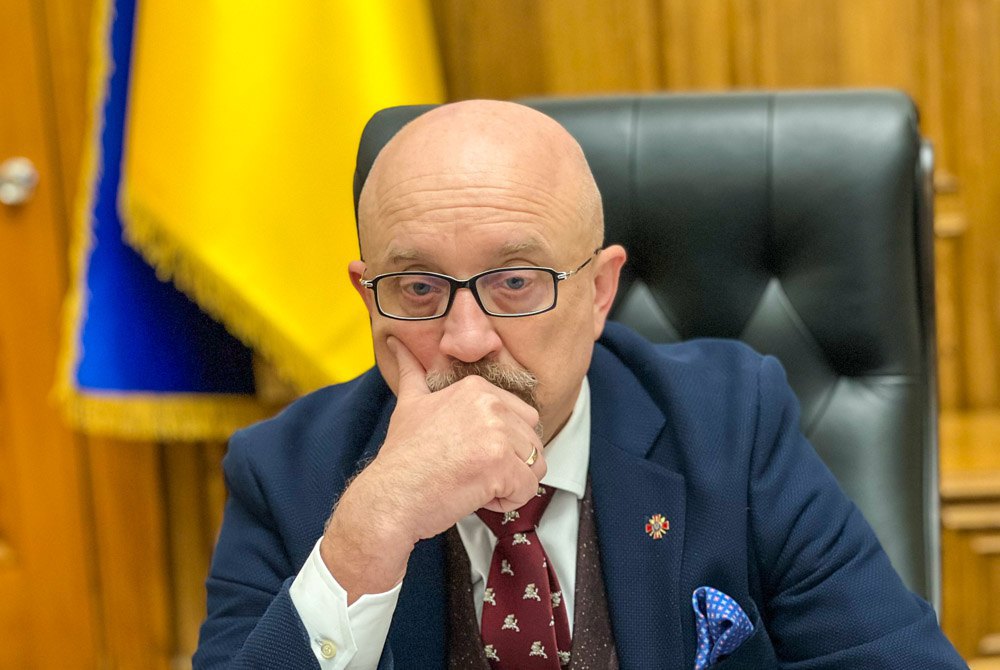
"Today it is in the interest of many countries to keep Ukraine at the forefront"
Sonya Koshkina: Western partners, in particular the United States and the United Kingdom, speak with one voice about the extremely high level of threat to Ukraine. Ukrainian authorities, on the other hand, are reacting with restraint, saying that the threat has existed for eight years. And they even say that for certain reasons our Western partners are exaggerating the situation. Do you know what these reasons may be?
It is incorrect and inappropriate for me to evaluate the information as received from our partners, regardless of the level. This will just be my assessment, which will be perceived as the official assessment of a government official who holds a very responsible position - the Minister of Defense. A such I will avoid offering an assessment and will try to explain it as I, myself, understand it.
Over the past seven years, unfortunately, Ukraine has not been on the daily agenda of many countries, so the local media paid less attention. There was a time of certain "addiction." But it so happened that the government in Germany underwent change. The upcoming elections in France are on the agenda; elections have taken place in the United States, and they have, accordingly, a new leadership. Therefore, the defiant behavior of the Russian Federation, now in its eighth year, has begun to raise concern. This happened for the first time in the spring, just prior to Easter, when the first information reports revealed a concentration of troops as a result of military exercises of the Armed Forces of the Russian Federation.
In terms of numbers, the figures are the same as they are now. We are talking about a ground component of a conditional 110 thousand troops, if we are talking about the number of soldiers of the Armed Forces of the Russian Federation. If we add the air and sea component, there will be no more than 120-125 thousand troops along the entire border of Ukraine, including the administrative border, the Autonomous Republic of Crimea, which is temporarily under occupation. I repeat once again: the figures are the same as in the spring of 2021.
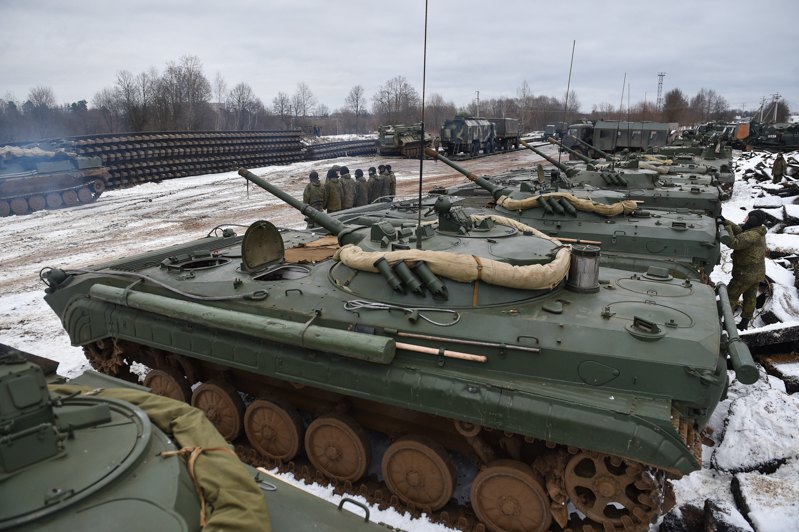
Let me remind you that then the Kremlin's defiant behavior led to a call from the new President of the United States, Mr. Biden, and later a meeting in Geneva. We do not know what the parties talked about for five hours, we can only guess, but Russia understood that this tactic works. And in the fall it resorted to the tactic again. This has already attracted the attention of The Washington Post and Politiko, on the backdrop of NATO forces withdrawing from Afghanistan.
Before Afghanistan, it was understood that information about the reduction in embassy staff or the departure of families of employees was our concern. These are domestic affairs, for the domestic citizen, because this is the internal agenda. Let's not forget that elections to the main legislative body in the US are taking place in the fall. The political rivalry between the two main forces has already begun. And the demonstration of special support for Ukraine, a proactive position is important not only for you and me, not only for the outside world, not only because it is a response to the challenges posed by the brazen Kremlin, but also because it is domestic policy.
This has become the domestic policy of the United States, Great Britain, and the Baltic states. We recall Mr. Churchill's famous saying that there should be no lasting friends or enemies, there should only be lasting interests. Today, it is in the interest of many countries to keep Ukraine at the forefront.
In the words of Zbigniew Brzezinski, a prominent adviser to several US presidents, geopolitics is one big chessboard. As such, today with you we are merely a few pieces on that chessboard. But there are more than two players. And the media react because it is trendy - they have gotten on the track and cannot get off, because they need the consumer to visit the page, click, view, read.
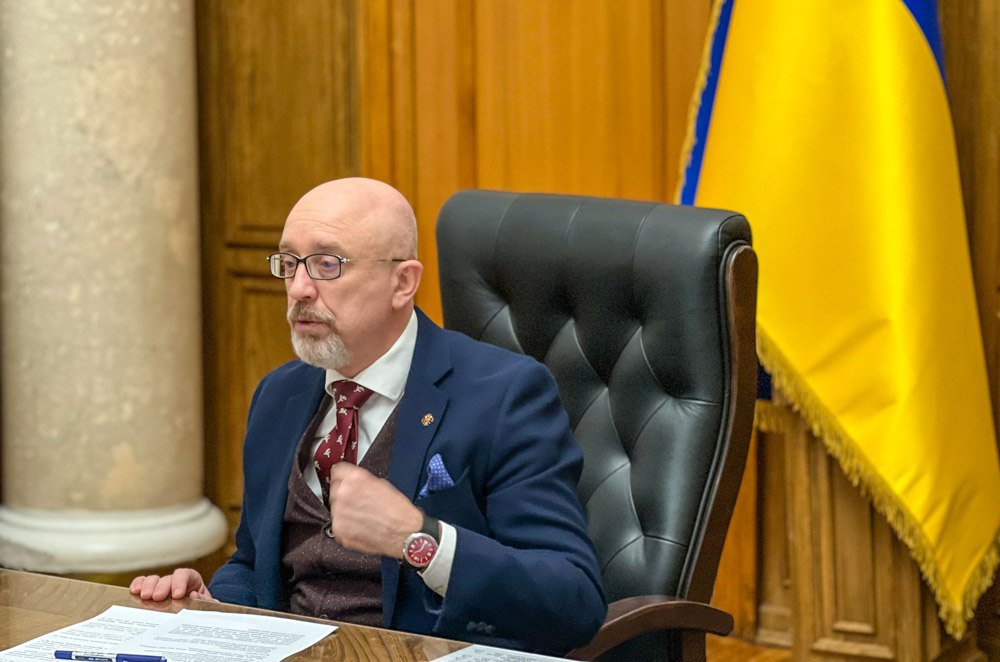
But there is another interesting point to analyze: now, at a time when our partners are expecting a full-scale invasion, foreign journalists from these same countries, US, Britain, France, Germany, etc. – about 400 applications are currently under consideration for accreditation – are being sent to the Joint Forces Operation zone. And not military journalists. Do you think that any state would allow its citizens to take such a risk if there was a real danger on the scale they are predicting?
SK: An interesting explanation.
Fear is one of the most powerful emotions, when a person is easy to manipulate. But the goal of the manipulation and the desired result is unique to each country. I repeat again: we are the focus of many internal agendas. This means that we must assess the facts intelligently, with a completely cool head, compare them with data from other intelligence. But the evaluation belongs to us, because we have been waging this war for the eighth year.
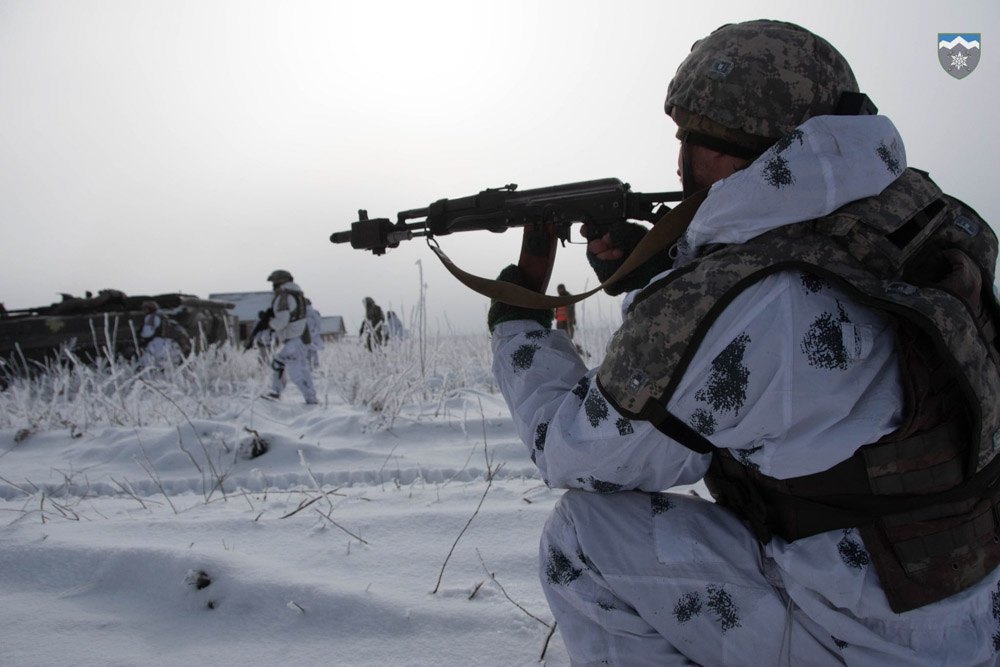
SK: Actually, I wanted to ask about the discrepancies in the assessments of our country and those of Western partners.
Once again, it is important to note: our data is the same. Assessments are in fact different. But Valerii Fedorovich Zaluzhnyi and I discuss the situation every day, analyze what is happening with the General Staff, evaluate the facts. Daily. And sometimes several times a day. In addition, meetings are held in the National Security and Defense Council with the participation of representatives of intelligence, other security and defense sectors: the Ministry of Internal Affairs, the Border Guard Service, the National Guard, etc. We analyze from all perspectives.
As of today (January 27 - LB.ua), the strike group of the Armed Forces of the Russian Federation has not been formed. Any military expert will confirm that a strike force has several characteristics. These characteristics are not evident effective today. This does not mean that they cannot appear tomorrow should there be such decision in the Kremlin. It can be formed, they have the potential to form a strike group, but over time. And we will clearly see certain events taking place, which demonstrate the beginning of the formation of a possible strike group. We will understand this in advance. As of today, the situation is no different from the spring escalation. Although there is one difference. It’s an additional 1000 kilometers…
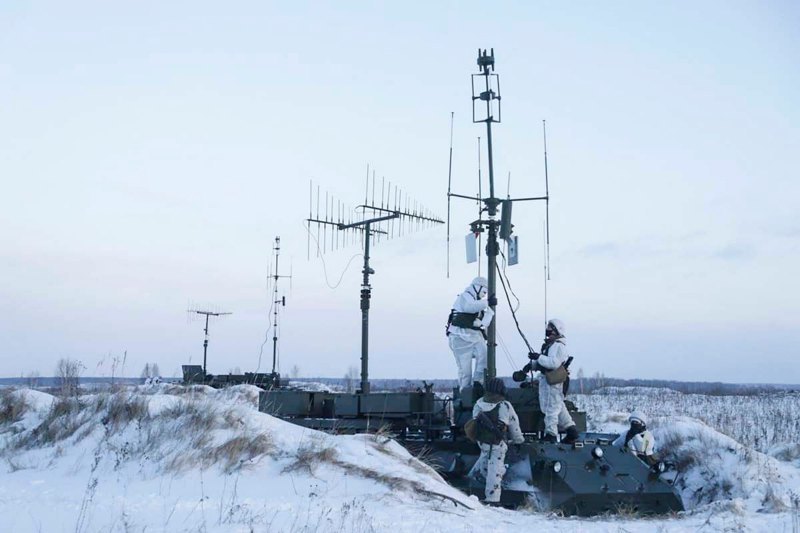
Oleh Bazar: The border with Belarus.
Yes. With our friendly neighbouring country Belarus.
Currently, we see no threats from the Belarusian people, but joint training exercises with the armed forces of the Russian Federation are being conducted there, and Belarus is obliged to watch the border closely. We remember the elements of the Kremlin's hybrid influence on Poland and Lithuania through the migration crisis. It was a test of the resolve and unity of NATO and European Union member countries – how would the European or NATO community react in the event of a serious break into Poland or Lithuania?
Of course, we were also prepared, watching the migrant camps in the area of the "triangle" or "tri-cross," where the borders of Ukraine, Poland and Belarus converge. We understood that, hypothetically, migrants could attempt to break across the Ukrainian-Belarusian border, and then break through to Poland from the Ukrainian side. We discussed those risks, threats. The Border Guard, the National Guard, the Ministry of the Interior, and the Armed Forces were ready for any scenario.
"There is no probability of occupation of Kharkiv"
SK: What is a greater risk today - the east or Belarus?
The east, unequivocally.
SK: But experts say that during the eight years of the war, our military knows the landscape in the east well, we have studied almost every position. While an offensive from the north would be a completely different experience.
In their analysis, the experts included only a 409 km strip of the occupied territory. They forget about Kharkiv, for some reason they forget about the far south from the Azov.
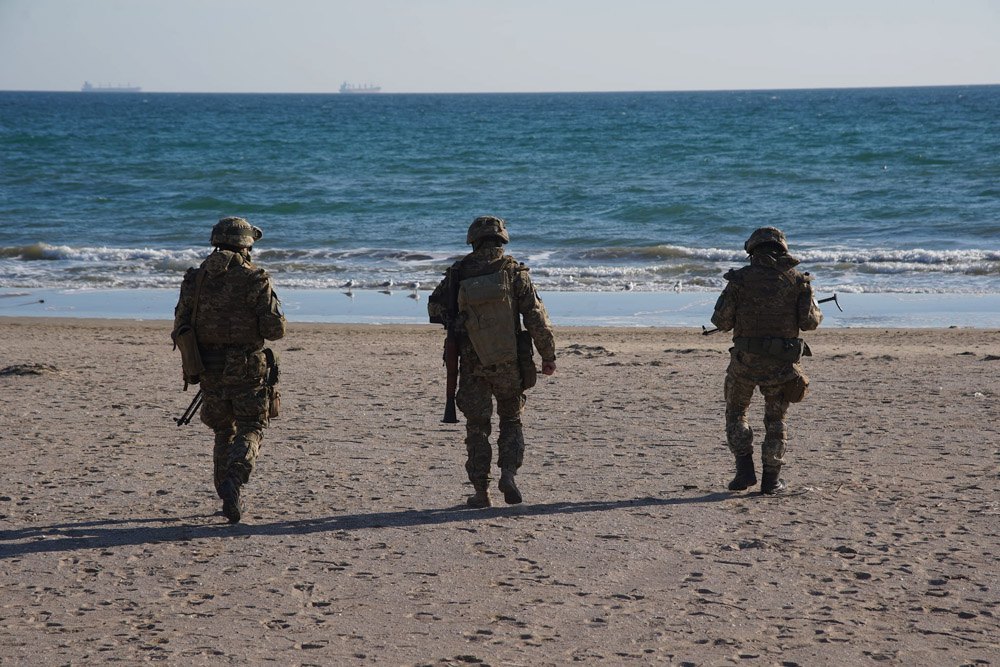
SK: Mariupol?
Yes. The eastern-southern part also borders with the Russian Federation. And, forgive me, the border in a region of Kharkiv oblast – it also borders with Russia.
SK: We recall the President's words about the possibility of an occupation of Kharkiv. How real is a sudden offensive operation, the goal of which would be to cut off a piece of territory and from there blackmail the Ukrainian authorities?
You ask about reality. Fortunately, I can say with confidence: there is no such reality. I will explain - why. Because if we talk about reality, it is 100% probability in terms of words. If we take the theory of probability, the reality is 100% probability. There is no 100% probability.
They are precisely working out different plans for the invasion in the event of a political decision. Therefore, there is a possibility of attack from the south, from the sea and from the east. I will say more, from the temporarily occupied territories of Ukraine there is also a probability. Different plans are being developed. But I consciously understand that there is no such reality as of today.
A direct invasion will result in significant, serious series of losses for the Russian Federation. Not only human in nature, economic losses, political, in terms of international influence. Look at the exchange rate in Russia, the value of the ruble against the dollar. Look how the securities or debt of the Russian Federation are being rated in the last two or three weeks. You will see that they are spiralling out of control.
My assistant returned from a vacation in Egypt, where she met many Russians from Siberia. They were very friendly toward Ukrainians and worried about the rise of the ruble against the dollar. They have heard rumors that they will be banned from exchanging rubles for dollars, that they are to live in the ruble paradigm. In fact, this is to hide the dependence on the exchange rate, so that people do not see a sharp deterioration.
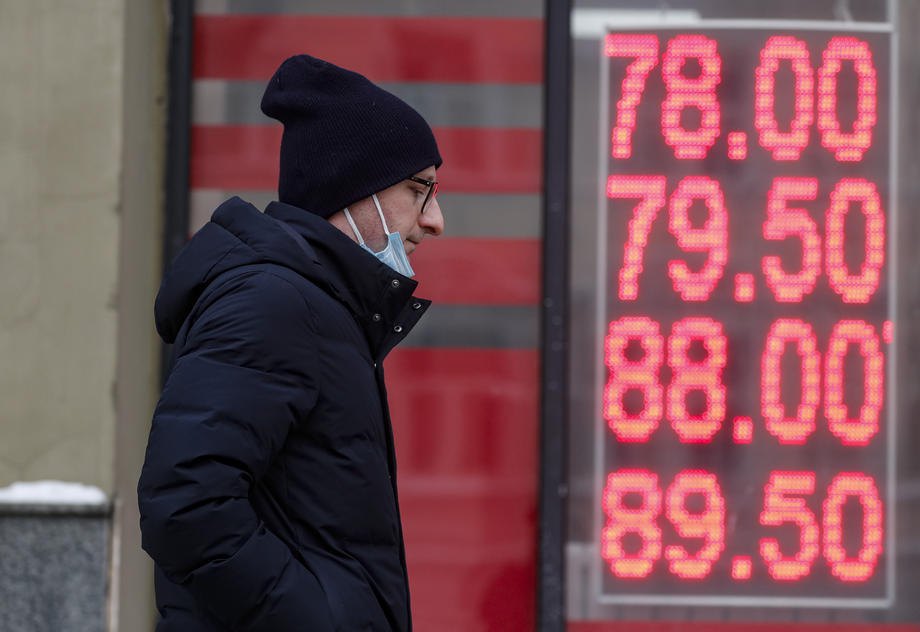
Foreign markets are very sensitive. Ukrainian foreign debt was traded at a discount amid reports of a possible escalation, and this ceased only after it became known that the United States government had approved an aid package for Ukraine worth $200 million. The market breathes and reacts. And the performance of Russian securities is poor. And this is just a threat. Imagine if, God forbid, an offensive began. Russia's economy would fall on all indicators. Even the Germans will have nowhere to hide. They will be banned from supplying highly sensitive technologies. It will be difficult for Siemens and others to do so. And all oil production is dependent on modern technologies, modern equipment.
SK: But Russia is not guided by common sense.
They took Crimea entirely pragmatically. A weak Ukraine, the lack of a stable central government, the ability to play around under the guise of a "referendum", our Constitution, in which the Autonomous Republic was erroneously referenced, legally it could have been the Crimean oblast. If it had been the Crimean oblast, there would have been no "referendum", no Crimean parliament. But history is not conditional. So, we have what we have.
Crimea was easily occupied because the West allowed them to do so. It won't work like that again. The Kremlin is convinced that part of the population will greet them with flowers on the streets. This requires internal imbalance, internal strife, which they allegedly support there to some extent. What happened in Donetsk, in Luhansk, when henchmen seized administrative buildings, will not happen again. The country has changed. Nobody will allow this – not in Kharkiv, Sumy, Chernihiv or anywhere else.
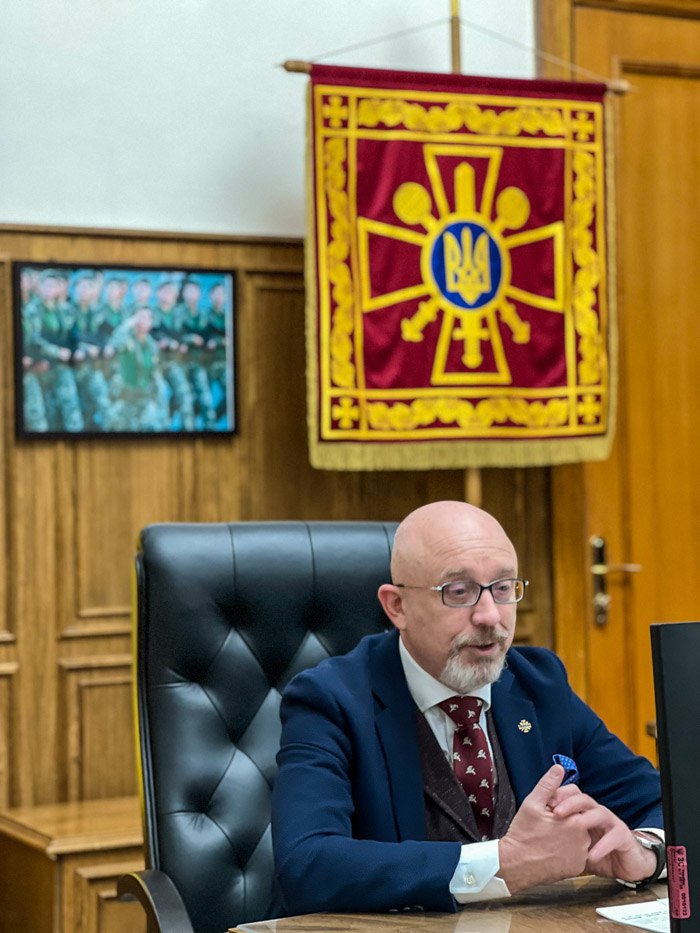
SK: Even if they cross the border, they will encounter strong guerrilla resistance?
Particularly. The Special Operations Forces are responsible for the resistance movement, which today is enshrined in law, and it is preparing, believe me. Even if they tried to occupy some territory, hypothetically, it would be unrealistic to keep it. The weak Ukrainian army in 2014, dressed, armed, and fed by volunteers who fought alongside them, was able to de-occupy two-thirds of the territories occupied at that time. 200 settlements were then liberated. And now, with our experience, armament, readiness, attitude, cohesion, this is unrealistic. Unreal. Nobody will give Kharkiv away. I believe that the president's words were somewhat distorted or misinterpreted.
"I am surprised that the new German government has not changed its position on providing military-technical assistance to Ukraine"
OB: On the backdrop of this information campaign, Ukraine has received significant support from Western partners. The United States and Great Britain are supplying significantly large weapons. Are we making any commitments to these countries - material, financial?
We have no obligations or additional commitments toward our partners. They are helping us of their good will. There is only the notion of common sense and the understanding that we will use these means of defense in good faith, including the active defenses that we have received as a gift from the UK Government. We are obligated to store them properly, use them wisely, and ensure that the weapons do not fall into the hands of the enemy since they are sensitive technologies.
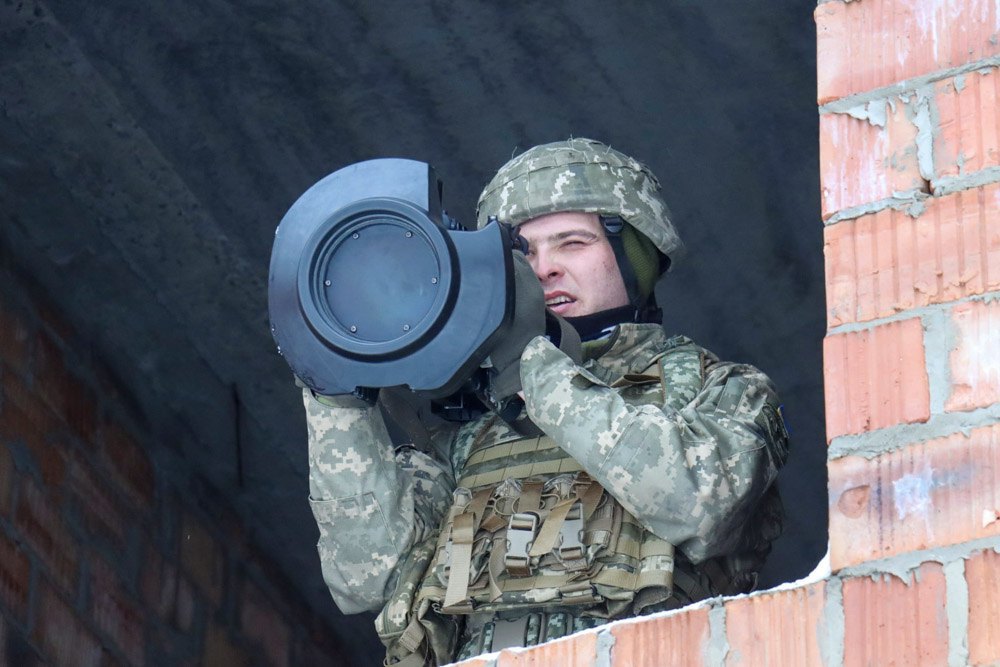
SK: Why did Poland, which we consider our close neighbor and friend, not help Ukraine? While Germany is simply blocking other countries from providing aid.
It is necessary to separate Poland and Germany. I, in fact, communicate daily with the defense ministers of many countries using various modes of communication, in addition to personal meetings. A great deal of documentation is still in the works, and we will receive physical assistance from some countries at a later date. I can assure you that today many European countries are among our friends, as well as the United States, Great Britain, and Canada. Yesterday (Wednesday, January 26), as you are aware, Canada resolved to allocate $340 million to immediately support Ukraine and to continue Operation UNIFIER for an additional three years – until the end of March 2025, and to increase the number of training mission personnel in Ukraine to 400 people.
We will inform the public about the details of the $340 million aid package a little later, upon completion of certain processes. There is already an agreement with all my counterparts. But we will not disclose the details until they decide to make it public. As was the case with Mr. Ben Wallace, the British Secretary of Defense, information about the aid to Ukraine became public after a report was presented to the British Parliament. The first message is always on their side. I respectfully wait for a message from the Government of Canada or the United States, and then I can respond accordingly.
We are also waiting for aid from the Baltic countries. There was such information, but I will personally share this information when I officially receive it at Boryspil or another airport. The same applies to Poland.
Many countries are ready to help us, some are doing so quietly. Maybe someday we'll make it public. Every country has its own political dependencies, particularly related to its relations with the Russian Federation, internal political dependencies. But what is gratifying is that governments are taking unprecedented steps, giving us that which earlier we had never dreamed of.
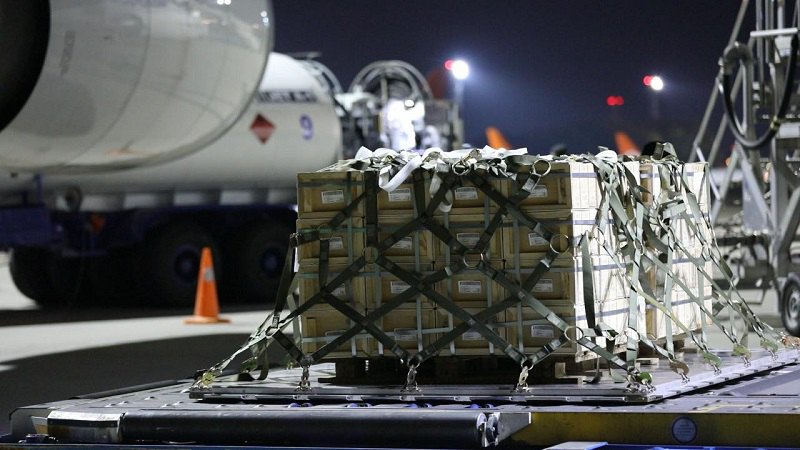
Some of my requests during my first - after my appointment - visit to Washington in the interests of the Armed Forces in the fall were then perceived as unrealistic, and now they are being implemented! As they say: water grinds stone. In other words, we are beginning a process of systematic communication. This excitement in the Western media, on the one hand, brings an unpleasant air of nervousness, imbalance, and panic. At the same time, it also results in constituent pressure on governments to support Ukraine which they refer to as a friend and partner, and not only to provide political support but also military-technical support. Today this is a sensitive topic.
OB: Now let's talk about Poland.
Regarding Poland: we are planning a meeting on the Lublin Triangle platform between the defense ministers of Ukraine, Lithuania, and Poland. Details, locations, and dates are currently being agreed upon. But it will be soon. Moreover, a telephone conversation with Mr. Mariusz Blaszczak, the Minister of National Defense of Poland, is planned in the coming days.
We have already received an offer of military-technical assistance from our partners in the Ministry of National Defense of Poland. We are currently analyzing and fine tuning the details. This is very important for us. I am absolutely comfortable with Poland's position, we are friends with Poland. Everything is fine here. I especially have faith in Poland as our close neighbor and ally and look forward to a friendly meeting with Mr. Blaszczak soon. (On Friday, January 28, the National Security and Defense Council of Poland held a meeting to discuss military assistance to Ukraine and proposals of the Polish Ministry of Defense. - LB.ua.)
Regarding Germany… I am surprised that the new government did not change its position on providing military-technical assistance to Ukraine. I am not referring to humanitarian aid or medical treatment of our military at the moment. I think it is unfair that when it comes to the completion of Nord Stream 2, German officials continue to declare that Ukraine does not need aid, but rather the opportunity to defend itself. And some servicemen even question to whom Crimea belongs (this is the head of the German Navy, Vice Admiral Kay-Achim Schönbach, who said that Crimea will never return to Ukraine. - LB.ua ). Thank God, these actions resulted in their resignations. Unfortunately, there is a very strong dependence of Germany on the Russian Federation. It is obvious. If their former chancellors are members of Gazprom's supervisory board, perhaps therein lies the answer: pragmatism trumps ideals, European, democratic, liberal values.
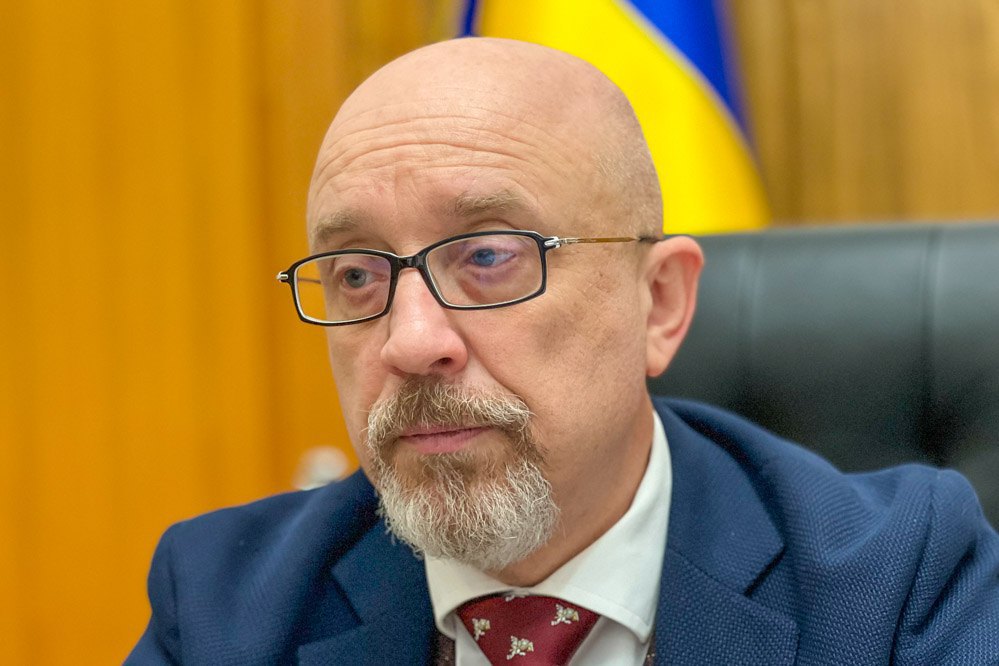
Some may say that there is a kind of atonement in the aftermath of the Second World War. But this then begs a logical question: why does this atonement not apply to the Ukrainian people, the Belarusian people, who were occupied first and lost tens of millions of Ukrainian, Belarusian lives? We deserve it, and we certainly have the right to defend ourselves.
Moreover, we are not saying that Germany needs to sell or gift us anything. No. Just stop blocking the opportunity to publicly, legally, openly purchase the defensive means and weapons we need through the NSPA (NATO Support and Procurement Agency). This is a kind of ‘Amazon’, where we pay money in advance, and then go through all the verification procedures. The NSPA has a supervisory board, where each Alliance partner country adopts decisions by tacit approval. In March of last year, Germany exercised its right and announced in writing the termination of this procedure. This is the equivalent of not granting permission. Germany blocked us from purchasing US-made Barrett sniper systems. But its withdrawal from the tacit consent procedure resulted in blocking the entire large package of our needs, including Lithuanian-made anti-drone rifles needed to block drones that send Russian troops across the line of contact to the temporarily occupied territories and drop grenades.
OB: What does the aid coordination mechanism look like - what do we need and what can they provide? It is clear with the Americans - their delegations came to Ukraine, studied our needs and capabilities. And the agreements with other countries?
I can't reveal all the details. There is an abbreviation, sounds much like the French word "au revoir" - "e le o re" - LOR - a letter of request.
Of course, we have a well-established procedure, when the Armed Forces, the General Staff provide their needs, we have a rough understanding of which country may have what we need, and then we send these letters of request, in accordance with the appropriate procedure. During meetings and negotiations, I pass it on to them directly. They then study their capabilities, their legislation, readiness, scope.
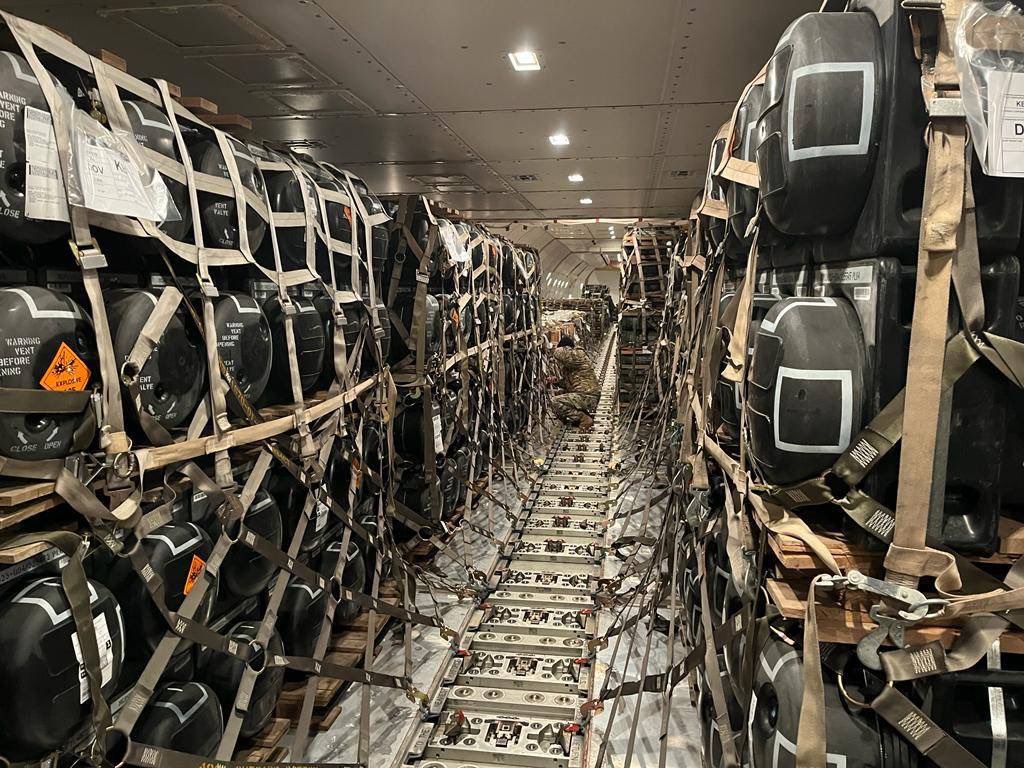
The main thing happening now: other than a few contracts, everything we are receiving, we receive at no cost. Without any obligations. Our only expense is truck fuel for taking the cargo from the plane to its designated location.
OB: Germany announced this week that it will give us 5,000 helmets as a gift. Did we ask them for this specific help?
No. We definitely didn't ask for helmets. I think they are trying to find a way to smooth out the situation in which they do not appear favourably.
Now the second wave has arrived. Countries that want to show their solidarity with us and understand the types of weapons we have as a post-Soviet country, are giving us ammunition of appropriate calibers from their supply, and sending new types of defense ammunition. We are, of course, happy to accept these gifts. We will need them in situations of intense artillery fire.
SK: Nine joint exercises with NATO countries are planned this year. Are they all confirmed?
So far there have been no cancellations. What was agreed upon in advance remains in place. In my opinion, if there are any changes, they will sooner be related to intensifying cooperation and joint action.
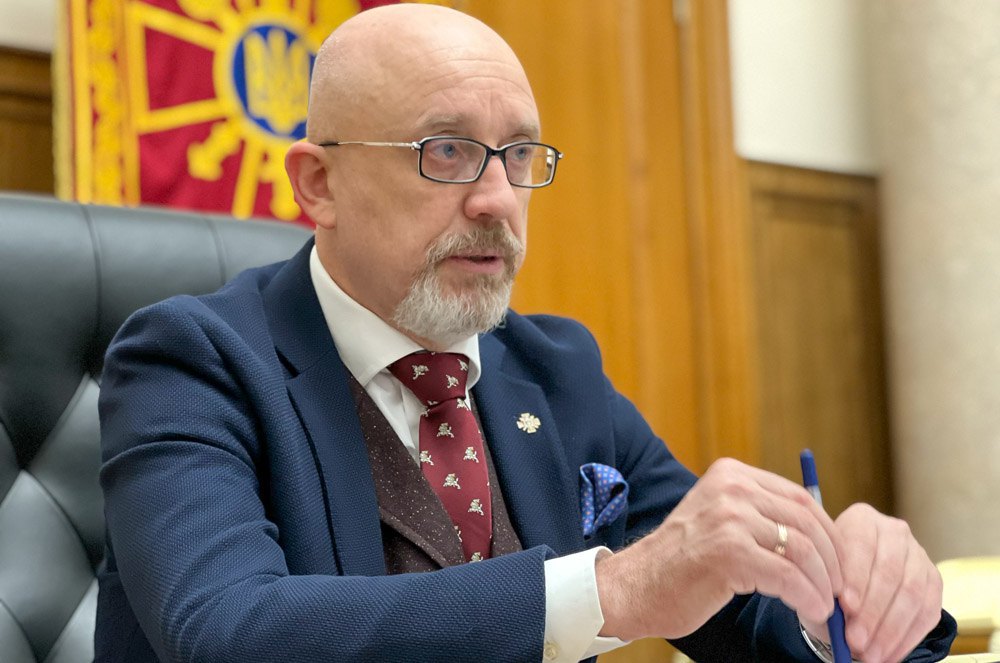
About the meeting with Shoigu: "It makes no sense to talk face to face with representatives of the Russian Federation at this level."
OB: The Cabinet of Ministers recently withdrew the bill on the transition period in the temporarily occupied territories. It was then that Russia began to actively insist on its removal from the agenda.
SK: This step was officially justified by the need to follow the recommendations of the Venice Commission.
OB: Is this a concession to Russia or an attempt to call for dialogue?
It was my initiative to address the Venice Commission, understanding the risks, the comments, and the warnings. We understood that the draft opinion to be written by the Commission originally had a different text. Representatives of the Russian delegation worked effectively there. The text was not in favor of Ukraine and was very politicized. But, fortunately, there is a procedure to extend the process of the Venice Commission, and we had the opportunity to communicate again, present arguments and express the opinion that we would be surprised should the conclusion be politicized as opposed to being legal. In my opinion, we got a balanced conclusion. There are indeed recommendations that we have heard before from various international organizations. In principle, we should have considered them during my term in the Ministry of Reintegration, but I did not have time to organize everything, and we had a dialogue with the committee, looking for an option.
The draft bill had already been voted on by the Cabinet, registered in parliament, and the relevant committee was to begin hearings. Some alternative draft laws had surfaced. We anticipated that the committee would return the bill to us after the hearing or we would recall the bill ourselves - the Ministry of Reintegration has a good team that will develop the Venice recommendations without sacrificing the main idea of this bill. That's why Iryna Andriivna (Vereshchuk - LB.ua ) took the opportunity, we discussed it in the government, and I consciously supported this idea, realizing that it was better for the project. I believe that this project will come to life when the time comes.
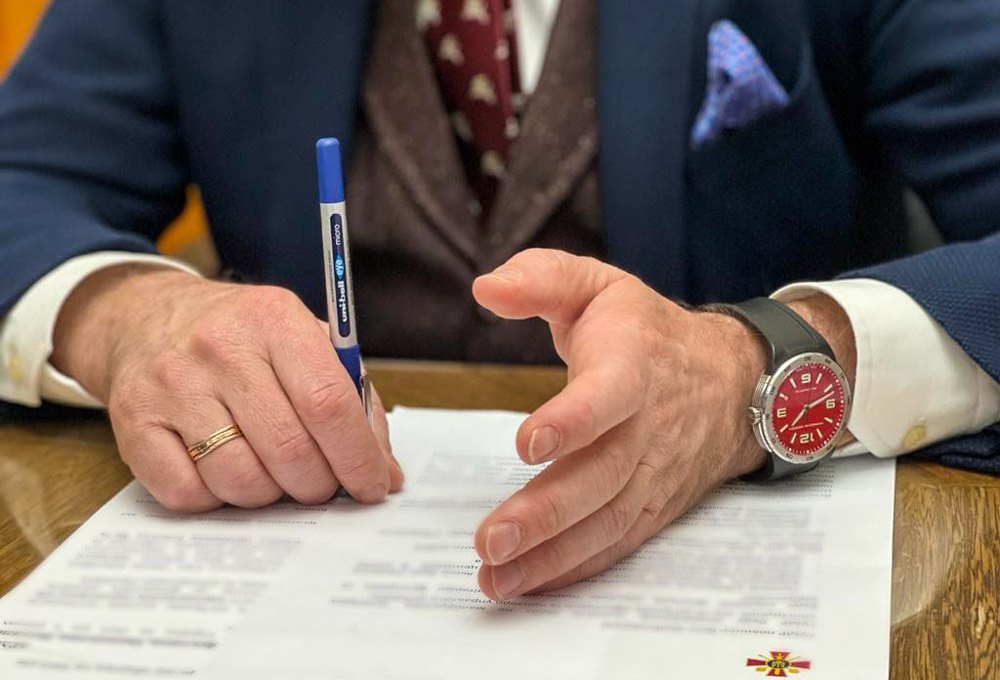
OB: And when will the time come?
When we develop it. Please note that during the conference in Kharkiv with the participation of Iryna Vereshchuk and international humanitarian and human rights organizations, where the bill was discussed, there were remarks and critical recommendations. After that, surfaced the initiative to recall it, and we, as the government, did so.
SK: Later you stated that you were ready to meet with the Minister of Defense of the Russian Federation Sergei Shoigu through intermediary Western partners. How likely is such a meeting?
This was not a statement. This was the answer to a question from a journalist in a corridor of the Verkhovna Rada (after a speech to the deputies. - LB.ua ). I was asked if I was ready to meet Shoigu. I replied that there was no such initiative, but if someone were to show such initiative or organize it, meaning NATO or the European Union in Brussels or Munich, where a security conference will be held in February, or under the moderation of my colleagues - the Secretary of Defense of the United States or Great Britain - why not? I am ready to meet, talk, answer questions, do we pose a threat to them. Maybe ask our own questions. But it makes no sense to talk face to face with representatives of the Russian Federation at this level.
It is necessary to have strong moderators, mediators on the same level. Today we have the Normandy format at the presidential level, at the level of political advisers, meetings of foreign ministers. Why can't there be meetings of defense ministers? Both the United States and Great Britain are aware of the Budapest Memorandum, that is why I named the representatives of these two countries.
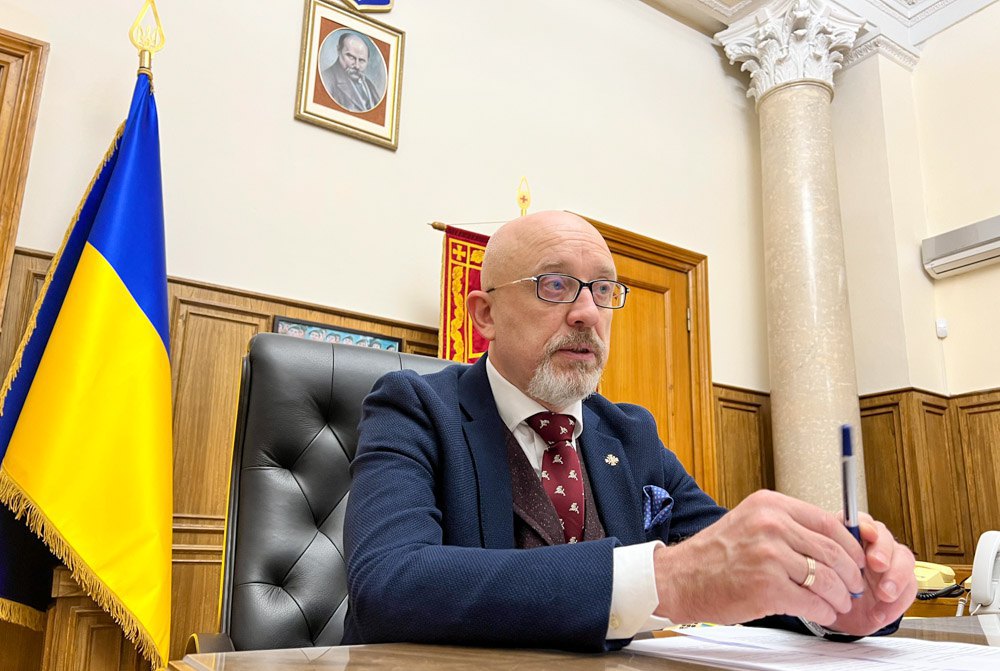
"We are the largest army in Europe - 261 thousand. There is no bigger employer in Ukraine."
OB: In 2022, the budget of the Ministry of Defense is UAH 133.5 billion, but only UAH 28.4 billion have been allocated for rearmament and defense procurement. In neighboring Poland, for example, $14.5 billion will be allocated for defense. You, yourself, have said that the expenditures for rearmament from the already approved programs should amount to UAH 200-250 billion annually. Will there be a revision of the budget, does the government have the capacity to increase spending and what is needed to sufficiently finance the needs of the Ministry of Defense?
The government can review the budget if it has the resources. It is very important to develop the Armed Forces, to support the army, especially since, according to a survey conducted by the Kyiv International Institute of Sociology, the Armed Forces that have the highest level of trust among the population.
The Armed Forces also rank 22nd in the US military power rating Global Firepower Index 2022, higher than the Armed Forces of Poland and Canada (24th and 23rd places, respectively. - LB.ua ). Today, our Armed Forces constitute the largest land army in Europe.
OB: We were even ahead of Canada in the rankings.
Absolute truth. I congratulated Valerii Fedorovich Zaluzhnyi on this and added that India and Japan are in the top five, so we are moving in that direction. There is room for improvement.
The budget we could spend is bigger than what you mentioned. The missile program alone, the conceptual framework of which has already been discussed at the level of the National Security and Defense Council, and we are currently working on a state target program, will require about 250 billion over 10 years. Today, UAH 319.4 billion has been allocated for the defense and security sector, which by law should be at least 3% of GDP. Revenues are growing - expenditures on the Armed Forces are growing. Of these 319 billion, 133.5 billion are part of the Ministry of Defense, the rest are border guards, the National Police, the National Guard, intelligence, and everything that is part of the Security and Defense Center. Of course, we will always lack funding due to the desire to move quickly. But we start from the resources that are in the state.
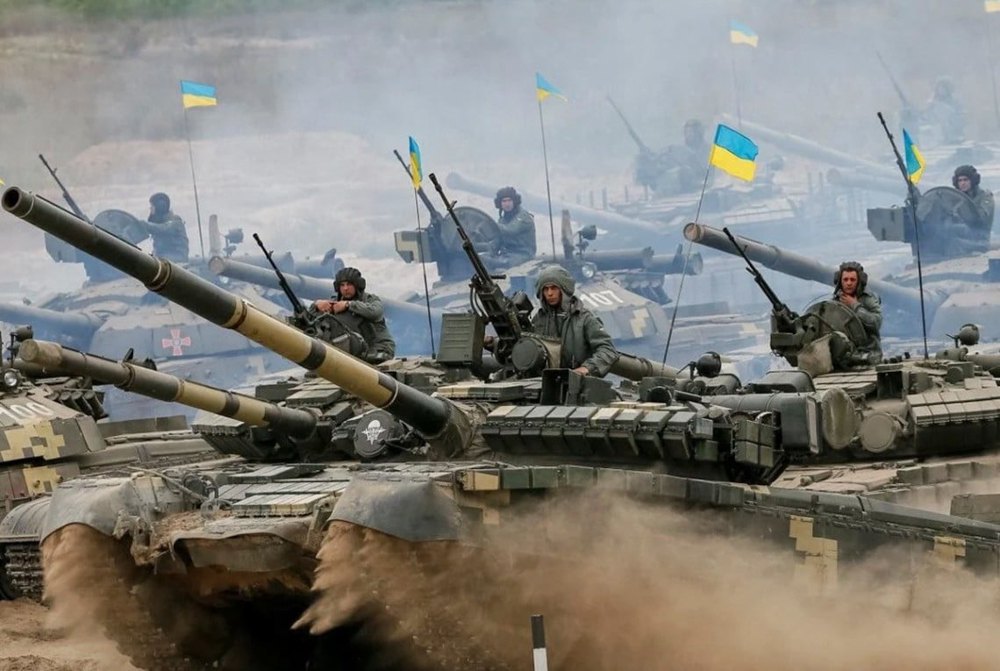
A simple example: we ended last year with the highest GDP. In hryvnia equivalent, this is the highest ever funding for the development of the Armed Forces. This includes all indicators - financial, currency, etc. According to my colleague, Minister of Finance Serhii Marchenko, January is always a deficit month. There is almost an entire month of holidays. But this year our treasury has surpassed the January budget by UAH 10 billion. This means that our economy is doing well. And it is important for us to maintain the information balance, returning to the beginning of the conversation, because we can scare ourselves. This balance can also be upset by foreign media, which spreads hyperbolic panic-driven information, negatively impacting our economy.
OB: Due to panic over Russia's possible offensive, we have already lost access to borrowing.
SK: In 2022, a little over one billion dollars were allocated for the development, purchase, modernization and repair of weapons and military equipment. This is only one-fifth of the budget of the Ministry of Defense, while it should be one-third - as in NATO countries.
Right. But I am a member of a government, where there are 21 other ministers. Everyone has their own needs and budget programs.
SK: But we are a country at war!
OB: With an extremely unfavorable security situation around our state borders.
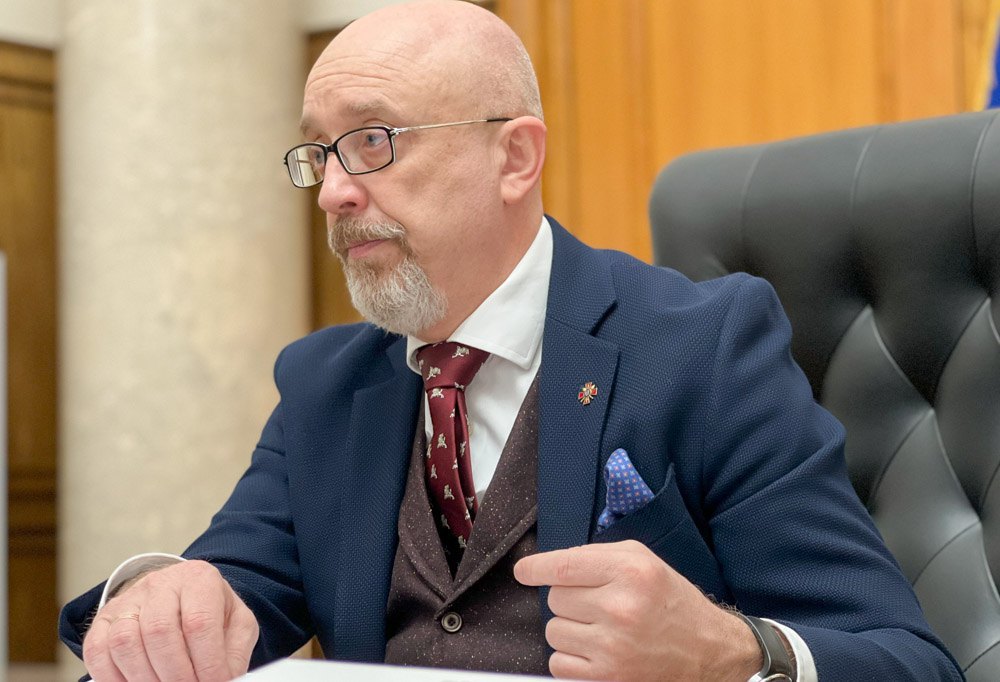
We cannot forget about the Ministry of Veterans Affairs, the Ministry of Social Policy, because then our internal security situation will be worse than the external one. The challenge and responsibility of any smart government is always to balance threats, risks, challenges, and needs. Therefore, in a balanced mode, yes, it is not ideal, but this budget allows us to ensure the appropriate level of readiness of the Armed Forces to repel while gradually developing.
Do not forget, we are the largest army in Europe - 261 thousand, by law, the size of the Armed Forces. There is no larger employer in Ukraine. And now count – it has the highest maintenance costs: food, clothing, money, expenses. The army does not earn, it spends - this is its mission and function. Therefore, my task is to balance. From the balance that remains for development and procurement, the General Staff, the Armed Forces and I determine what needs to be purchased new immediately, what can be repaired, what can be updated with the stocks left over from Soviet times. But we are gradually changing. We focus on areas that require special attention.
For example, the Special Operations Forces. They have a special function, and accordingly, they should have special equipment, weapons. Recently we raised wages for pilots.
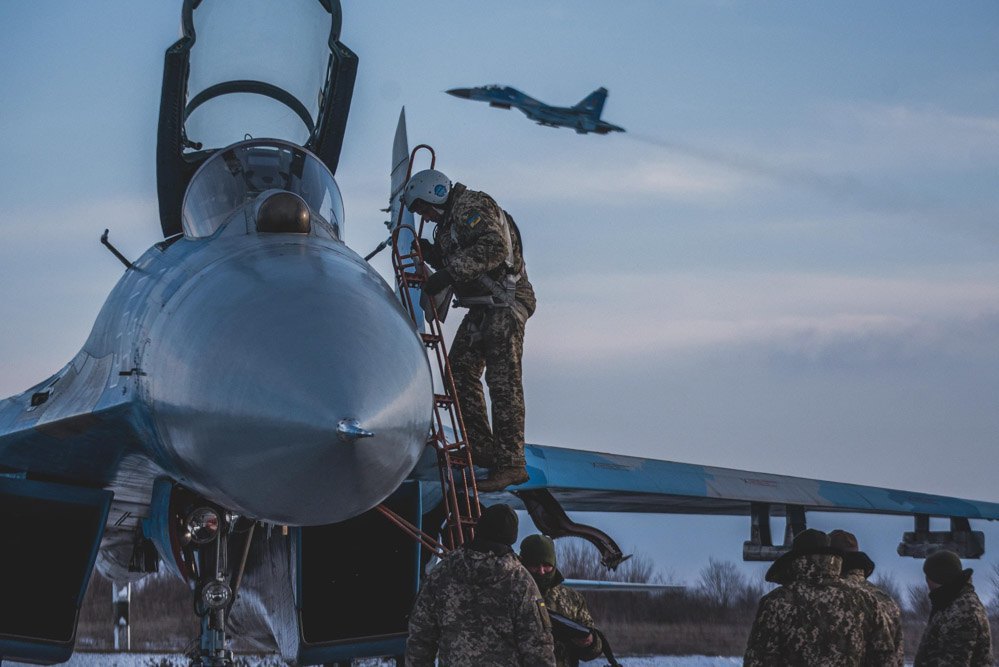
It was decided to increase the salaries of doctors in both the civilian sector and the Armed Forces. Medics in the Armed Forces should receive no less than medics who work in a civilian hospital. These are all challenges. And if we decide to take something away somewhere, we must also estimate the losses in terms of funding other projects and government programs.
I repeat once again: as of today, fuel reserves have been replenished, ammunition is available. We are ready to fight back. As of today, there is no threat that would require switching to wartime rails. This is an educated assessment. Should it happen, we will move to a completely different economic system. Then all development programs come to a halt. All funding will be redirected to the war.
So far, our task is to calmly and moderately, without panic, plan development and make reforms to make our army truly invincible in the coming years. And to this end there is much to do.
"The number of "Bayraktars" that we are receiving and will receive, are adequate"
OB: You say that together with the Chief of the General Staff you decide what needs to be purchased urgently. How do you explain the decision by your predecessor to buy two corvettes? Obviously, this is not the most urgent need of the Armed Forces, given that they will not affect the security situation in the Black Sea basin. And the asking price is at least half a billion dollars. This is huge money for Ukraine.
First, we have the concept of fleet development, which we are realizing from scratch today, taking into account the ships that left Crimea. We have two water basins - the Black and Azov Seas. And we must ensure that Ukraine can trade and export grain, metals, and other goods across the Bosphorus and the Dardanelles without being hindered. And for this we need to ensure freedom of navigation. We can do this only with a powerful fleet. The fleet is undoubtedly an expensive investment. But we must invest in building the fleet. It's a shame we didn't do it in 2014, 2010 or even 2004, but we have started. There is a concept developed by the Command of the Navy, agreed upon and approved by the National Security and Defense Council. Therefore, this program is being implemented. And it's not just corvettes, but also cutters. Some of these we get as aid from the United States, such as the Island-class patrol boats.
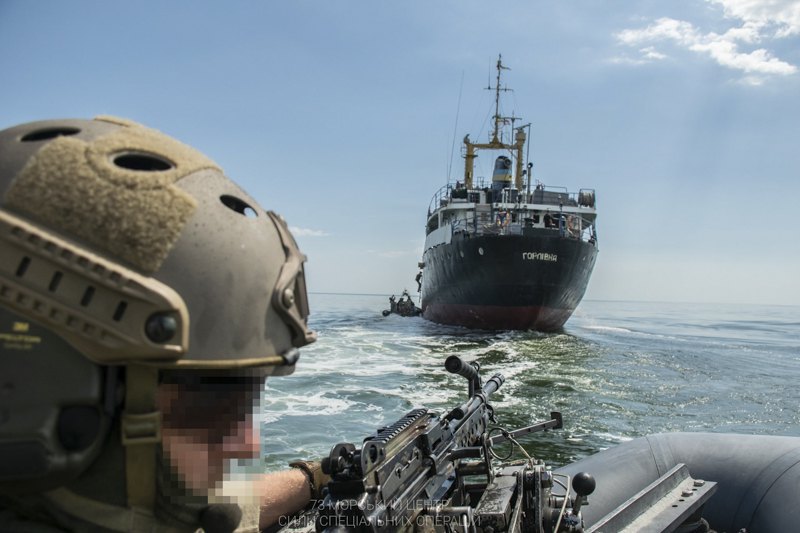
We are building one corvette in Turkey. And this is a strategic, deliberate action. Turkey is a country that is also on the Black Sea. It in fact owns the Bosphorus. And don’t forget about the "Bayraktars" (Turkish drones, adopted by the Armed Forces. - LB.ua). We have unprecedented friendly relations with Turkey. You already know about the plan to build a plant for the production of Bayraktars and a training center. Training will be my responsibility as Minister of Defense. And the plant – the responsibility of Pavel Ryabikin as Minister of Strategic Industries.
Therefore, the construction of a corvette in Turkish shipyards is an element of significant cooperation. In the unprecedented case of the "Bayraktar," we have been made privy to technologies that would be shared with no other country.
OB: Why not buy self-propelled artillery or strike drones in Turkey for the same money, which we need more than a corvette?
You think they are more needed.
OB: Even according to the concept of Navy development that you mentioned, we were to receive a corvette in 2030-2035, not now.
I repeat: we work in a balanced way, assessing our needs. We are satisfied with the number of "Bayraktars" that we have received and will receive. This means that in parallel we can afford to order the construction of basic things, including corvettes. Because then the corvette will move to Ukraine, and its equipment will be localized. It will be a joint product.
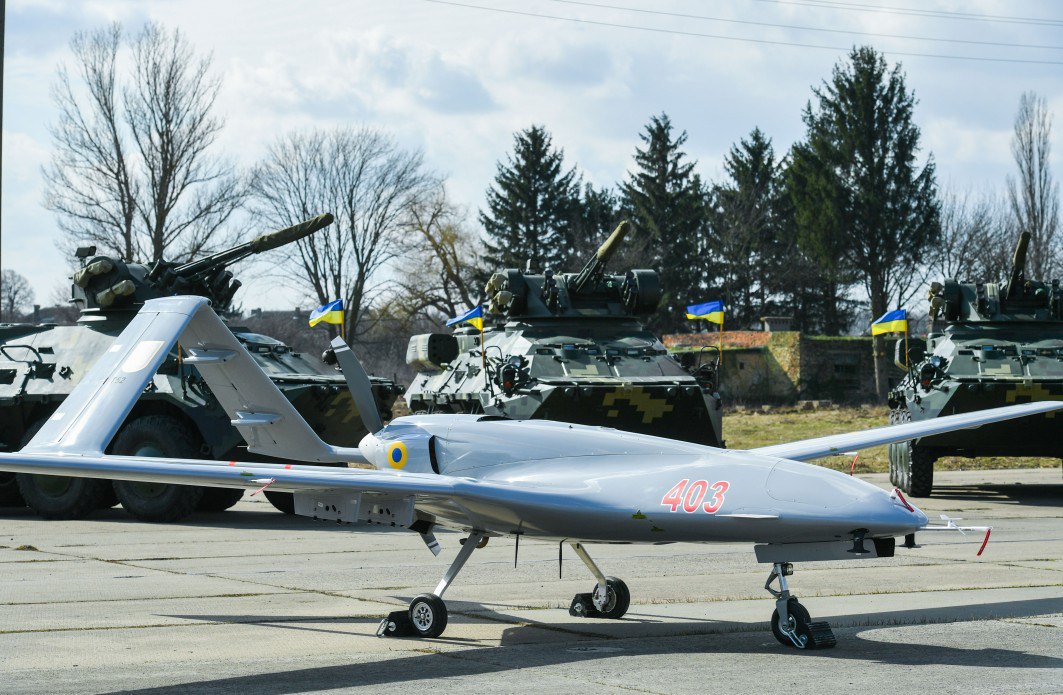
We are learning to work in the field of military-technical cooperation with other countries. Previously, this experience did not exist in modern, independent Ukraine. Only in Soviet times. Today we are restoring military-technical cooperation with many countries. In meetings with partners, we also discuss how we can work together in the framework of military-technical cooperation. This is important for us because we are looking 10-30 years ahead.
This is why we need to strengthen cooperation with all our partners. We buy ships from them, and they buy engines for Bayraktars from us, because they have recognized that the Ukrainian manufacturer is the best. It’s a two-way street.
At the same time, the Verkhovna Rada ratified the Intergovernmental Agreement Framework between Ukraine and Great Britain on official support in the form of credit for the development of the capabilities of the Ukrainian Navy, to which President Zelensky and Prime Minister Boris Johnson agreed in the summer. This opens four contracts with the British for the implementation of the Ukrainian fleet development program. We cooperate with countries other than just Turkey.
SK: Currently, according to experts, the fleet is perhaps the weakest point of the Armed Forces of Ukraine. Everything you talk about is primarily focused on the future but it does not solve immediate problems.
There is a short-term perspective, medium-term and long-term. The program is balanced, and we clearly know that next year we will have minesweepers, in one and a half - rocket boats, in two years - something else. We are not working on the principle of just doing something and doing it now, as long as the grass does not grow under our feet. We are laying the foundation for projects that we may not complete, but Ukraine needs them. This way someone like me will not be questioning why something wasn’t done five years ago.
The building blocks are important now both from the short- and long-term perspectives. Let the experts analyze why a strong fleet is necessary for economic security and freedom of navigation. If we are blocked in the Sea of Azov or the Black Sea, we will not export grain or metal, lose foreign exchange earnings, and will be unable to finance the Armed Forces. These things are all related.
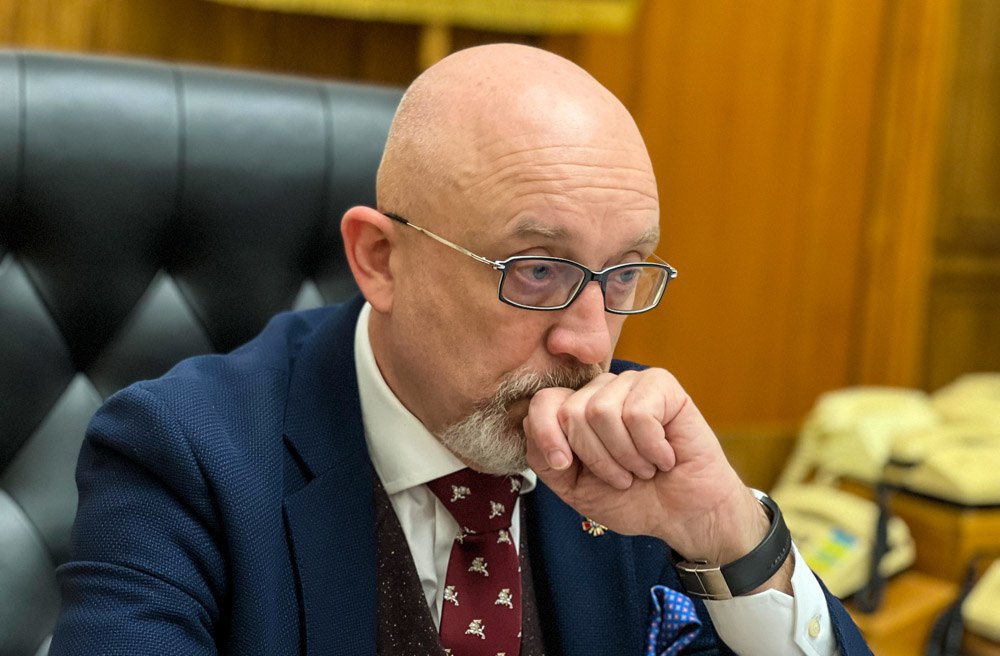
"The DOZ [State Defense Procurement] no longer exists. Let's learn to call it TPZ [Three-year Procurement Plan]"
SK: Last year, the State Defense Procurement was fulfilled to 98.8%, but officially – the funds were received only at year end. When will the procurement order start to be implemented this year?
First, DOZ or State Defense Procurement no longer exists. The concept of "State Defense Procurement" does not exist in Ukrainian legislation. We now have, under the new law, a three-year procurement plan. So, we’re now referring to is as TPZ. But not only the name has changed, but so have the approach and philosophy. The implementation process has changed slightly.
Today, there are several new participants of the procurement plan. Previously we had the Armed Forces, the ministry, the parliamentary committee, the government. Now the Ministry of Strategic Industry and the National Security and Defense Council have been added. Why?
There is a state approach: The Armed Forces identify needs for the next three years based on their assessment, analysis of threats from potential adversaries and development requirements. How many armored personnel carriers, tanks, missiles, which ones, which planes/helicopters, ships, submachine guns, sniper systems, or whatever else they need. The Ministry of Defense processes this information and places a consolidated order. The Ministry may say, for example: we need sniper systems that can strike from a distance of one kilometer. This is a minimum 338 caliber. The Ministry of Strategic Industry is looking at the market, understanding that the Armed Forces will need a certain number of 338 caliber sniper rifles over the next three years. Conditionally, the Ukrainian manufacturer has the capacity to produce 30% of this need, while in NATO countries, again, conditionally, there is a producer who can supply another 70%. These proportions are conditional. The actual proportions I will not reveal, but rest assured – in Ukraine we have very capable weapons manufacturers.
In the interests of the development of Ukrainian industry, the Ministry of Strategic Industry first studies the potential for investing in Ukrainian production to increase the percentage of Ukrainian weapons and to buy less abroad. That is, the planning for fulfilling this three-year order is carried out by the Ministry of Strategic Industry.
Theoretically, Zaluzhnyi outlines the needs, Reznikov creates the order, Ryabikin plans the fulfillment. Ryabikin then sends his planning proposal to the parliamentary committee, it gives its approval, and the National Security and Defense Council confirms the main indicators. After this, the government then approves the Three-Year Procurement Plan. This is how the law works.
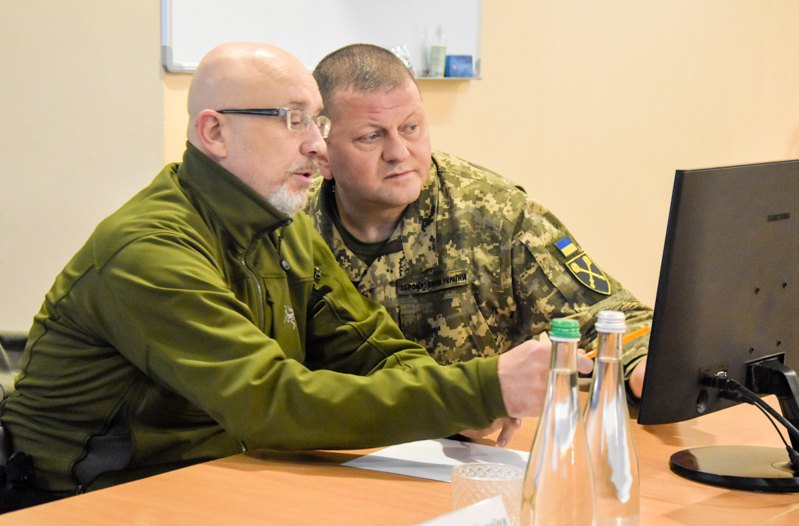
As such, the Minister of Finance understands that he is obligated to fund everything, planning the budget on an annual basis.
In December, in accordance with the law, Minister Ryabikin sent a draft of the Three-Year Procurement Plan to both the committee and the National Security and Defense Council. The open part has already been approved. The closed part was sent in January. The Ministry of Defense and the Ministry of Strategy and Industry did their homework. Now the ball is in the court of the relevant parliamentary committee and the Secretariat of the National Security and Defense Council. I hope that in the coming days or weeks we will have an answer. There may be some correlations, but the Plan will be approved and will be implemented.
As for the money spent in the framework of State Defense Procurement: as of December 1, 2021, we had 12 billion in unused funds. My new team and I rustled some feathers and fulfilled the order to 99.8%. 300 million was returned to the treasury. Why? Because many things were not in perfect alignment with the committee. And the State Defense Procurement, all changes to it, needed to be ratified by the committee.
SK: What's the problem? You have a majority, the minister was from the majority. Why were there disputes with the committee?
The committee is very professional. In my opinion, completely depoliticized, in the good sense of the word. I had the honor of attending several meetings of this committee. I sat and carefully listened to the proceedings. There was the military, representatives of the Ministry of Defense, there were discussions about changes to State Defense Procurement. Deputies from different factions quite harshly […] remarked and commented on various aspects. But fairly, justifiably, with common sense, and in accordance with the law. As I understood it, there was a lack of personal communication between the committee and the teams representing the Ministry and the Armed Forces. We rectified this gap.
Today, the process of communication is well established, in my opinion. Committee meetings are always attended by either myself, or alternatively the deputy ministers. We treat the people's deputies with respect, and in return we get their full cooperation. I emphasize once again: the deputies of all political forces represented. I hope this will continue.
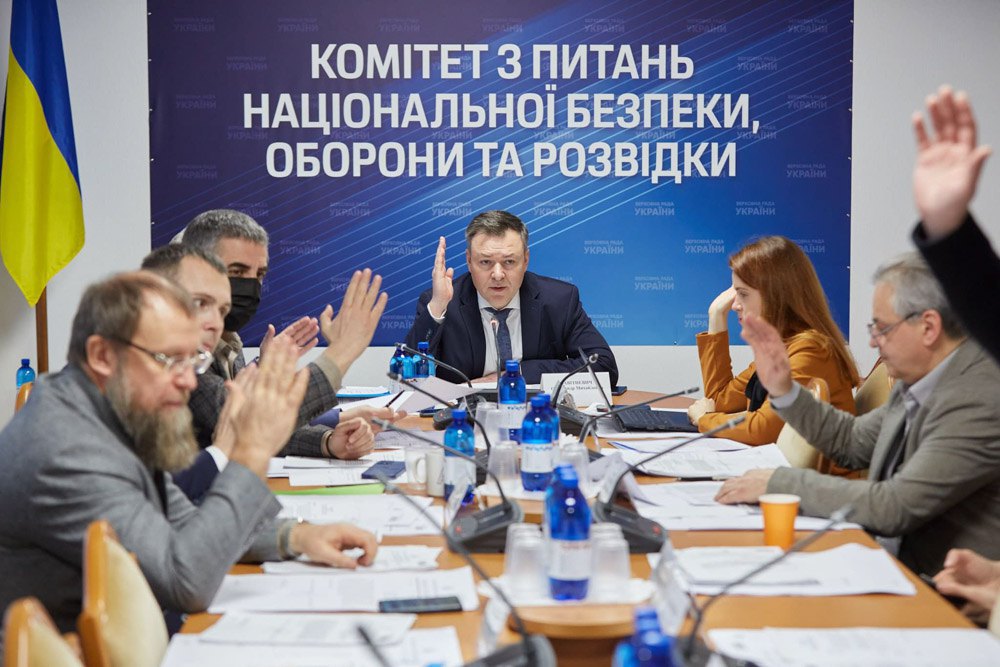
OB: Will the Three Year Procurement Plan solve the problem if the army buys not what is needed, but what is available? That, which our companies can produce.
The military identifies its needs based on risks, threats, and needs, and development plans - this is key. The Ministry of Defense creates the order, analyzes the markets, who can produce it according to qualitative and quantitative indicators. Of course, a Ukrainian manufacturer that meets our requirements for speed, quality, quantity, has an advantage. We want to develop a national producer, this is the concept of our independence, analogous to Israel. Israel makes almost everything itself, even sells it, and therefore, it is independent. The political situation is changing. We remember that partnerships are not lasting, only interests are lasting. Russia used to be our partner at one time.
We must maximize our production, our military-industrial complex. But if, factoring in threats and needs, Ukraine does not have all the weapons or equipment it needs and they cannot be readily produced, we will go abroad. Let me remind you of another complicated process, the adoption of military equipment, which is very bureaucratic. We will deal with this as well. But, thankfully, if military equipment is certified by NATO, under special circumstances the law allows for its easy adoption and use. That's why we easily take "Javelins", "Bayraktars," and other useful items.
Today the army declares its needs - how many armored personnel carriers, how many tanks and so on. And we order them from the best producer. For this reason, as part of the Defense Ministry's reforms, I want to create two agencies similar to NATO's NSPA, or ‘Amazons’. One will deal with the purchase of weapons, military equipment, and the second – with defensive means, helmets, bulletproof vests, food, fuel, clothing and more. We will create a military Prozorro, where certified manufacturers will be admitted to a registry already established by the Ministry of Strategic Industry. This is what NATO has done. As in Western banks, for example: if you want to work with their boards as a lawyer or auditor, you must pass all the tests and approval panels. Similarly, if you want to sell weapons or tanks, jeeps, trucks to Ukraine - pass the review, be included in the registry, so you can be trusted.
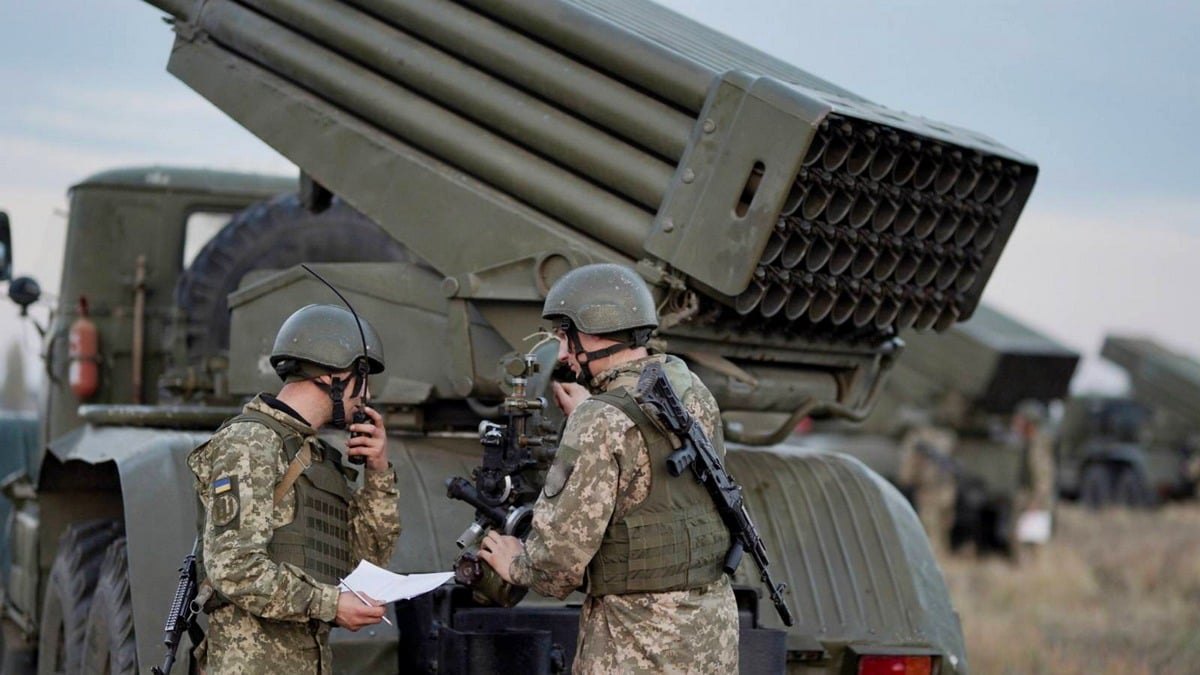
OB: What percentage of these purchases will be public?
Good professional question. In fact, our strategic advisors – Defense Reform Advisory Board – recommends that we declassify the purchase of weapons and military equipment to the extent possible. I am also a supporter of this. In the current Three-Year Procurement Plan, we have managed to reduce the amount of secrecy by 30%.
I am in favor of maximum declassification where possible. To open to the markets, to our neighbors who are willing to supply us with the things we want. When things are out in the open there is less corruption. Less involvement, monopolies, less focus on specific manufacturers. Less dependence on the monopolist, even if he produces a quality product. Tomorrow something will happen to them, and then it becomes a problem. So, I immediately said that there would categorically be no monopolies in supplying food to the army. This is a principled position.
Let there be five or six players - no problem. We must be independent. If someone goes bankrupt or the Russian Federation buys them for the benefit of ownership, I will still have 4-8 winners. Each of the winners of the tender will sign a commitment to guarantee the food supply food to the Armed Forces proportionately if one player drops out of the market for any reason. This will also apply to other types of procurement.
By the way, in the Ministry of Defense there are different divisions, one of them being the HUMR - Main Department of Property and Resources. This is a monster, created earlier, which combines within it everything related to the commercial component. Today, HUMR has a negative connotation. The greatest potential risk for corruption is concentrated precisely here. And I am informing you that I am liquidating HUMR as an institution. There will be a reorganization, the structure will be divided into several divisions - the Office of Customer Service, the Office of Corporate Policy, the Office of Alienation of Surplus Military Property, and the Center for Land Management of the Ministry of Defense. It will be a legal liquidation, reorganization with the preservation of legal succession. Accordingly, this will result in significant decisions with respect to personnel. Today, HUMR employs about 200 people with long histories there. And business, that plays with all this in a non-public, non-transparent way, will also be destroyed. This is a conscious decision. In the near future, it will be a legal process. HUMR will be destroyed like Carthage.
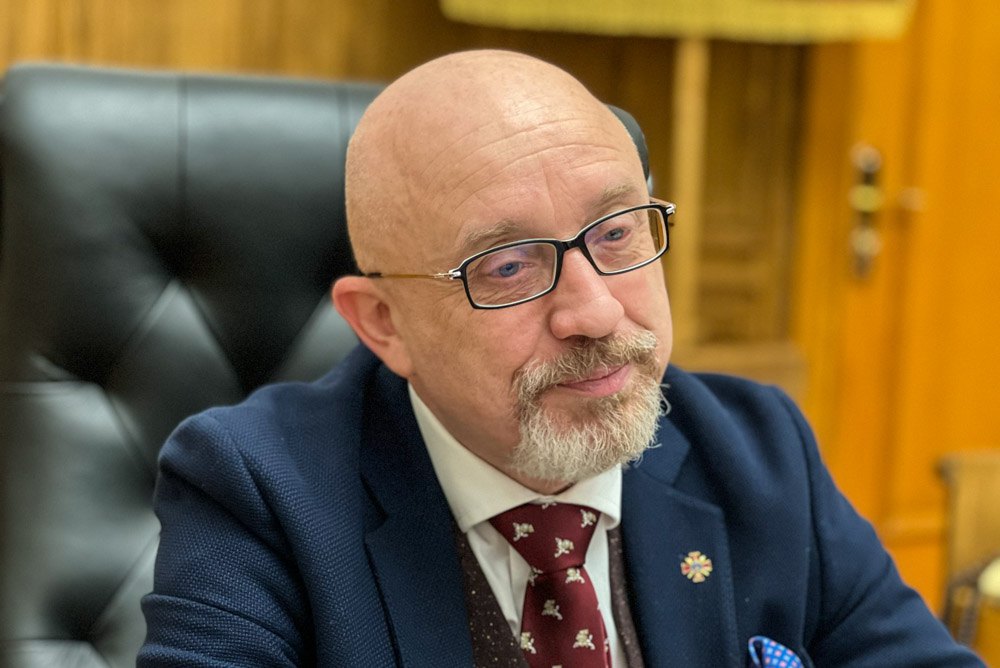
"We are defending the sky rather well with the arsenal we have. It is effective.»
OB: What are the priorities for Ukraine's rearmament in the next three years? How would you describe them?
We have a great need for the development of what is referred to as electronic warfare and electronic countermeasures. The world is evolving towards unmanned aerial vehicles, unmanned helicopters, unmanned wedges, everything is unmanned. Everything is being roboticized. We know that we must advance in the area of suppression systems, long range defense and surveillance. We are particularly interested in the development of surveillance in surface and underwater conditions. We are talking specifically about the Black and Azov Seas. We also need to develop our drones. We already have prospects for the construction of Ukrainian "Bayraktars" in Ukraine. And great hopes for the KB "Luch", which is produced by "Sokil-300".
SK: How long will it take before we can produce our own "Bayraktars"?
If all goes well, I think the plant can be built within a year. This is not a complicated story. The equipment is already available, it will be delivered. We just need the right platform where we can mount the equipment and test it. The place has been selected. There is an airfield nearby.
SK: You agreed to a 10-year missile program with a potential funding of UAH 200 billion.
The missile program must be approved. It has not yet been approved as a targeted State program.
For example, there is a line item to launch this program in this Three-Year Procurement Plan. But let's talk about this when it gets approved and appears in the budget. But if you think strategically, in the next 10 years it is included. There may be changes in terms of financial resources.
SK: But neither KB “LUCH” nor KB “Pivdenne” have experience working specifically with anti-aircraft missile systems.
You are deeply mistaken, but I will not comment further. They have experience.
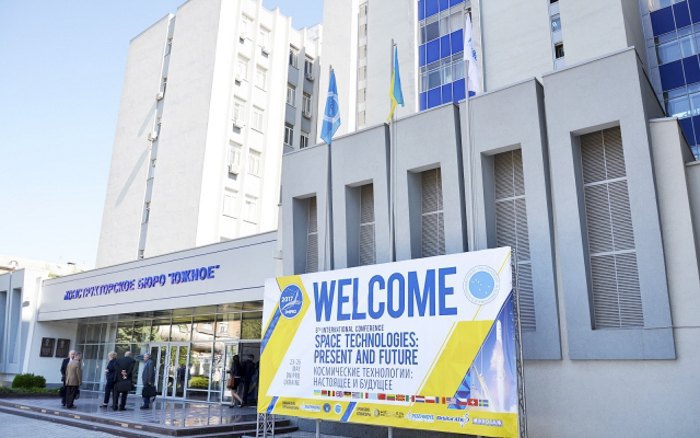
OB: There is still the significant problem of standardization. For example, our wheelbase is different. It just needs to be replaced.
Absolutely accurate. We really need to develop our missile and air defense. Develop a fleet. We have a plan to reorganize the Armed Forces in accordance with a new wheelbase, and this is a challenge for us. […] Thanks to various programs, we have a lot of "Toyota Land Cruisers" of a military nature, other automobiles. And these are not weapons, but necessary military equipment. The same goes for the wheelbase of different types of trucks. This is strategically important. I discussed this with representatives of the General Staff, who are responsible for armaments. The issue is that the best option for the army is to have the most standardized items. This allows for the repair of equipment, replacement of equipment. Today, we cannot buy the KAMAZ or MAZ, which were built in the Soviet Union. We would be happy if our national manufacturer KrAZ made everything for the Ukrainian army. But what is the future of this domestic producer? Will it be able to rise from its knees and continue to work? Do we need to look for someone abroad? As a supporter of the idea of independence that we discussed, I am in favor of there being a national manufacturer. If there is a chance to fully restore KrAZ so that it can produce a modern wheelbase, I will applaud.
OB: So there is no decision yet on what to do with it?
There are draft decisions with which we are working, but I am not ready to announce anything specific at this time.
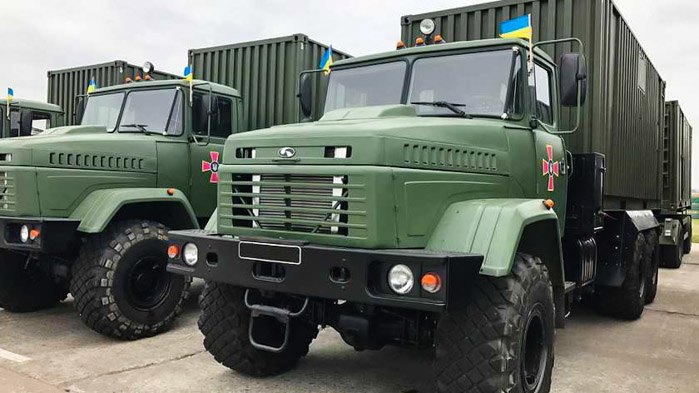
SK: Will the Ministry of Defense increase orders for "Stugnas " and "Corsairs"?
I will not answer this question. Without quantitative indicators, this would be incorrect.
OB: What are the specific developments in ABM? The missile defense system we have is still Soviet-made, and not everything can be modernized.
First, not everything is so bad. We defend the sky well with the arsenal we have. It is effective. That's why it's not that easy to fly over us and and drop something. But, of course, the modern world is evolving, so we will look for opportunities for serious development both independently and through aid.
OB: Since 2014, as far as we know, we have been asking our American partners for an anti-ballistic missile system. Will they eventually hear us or not?
Let's see.
OB: The problem with aviation is the same as with the wheelbase – for the most part it is old, Soviet and does not lend itself for modernization. Moreover, aircraft engines are primarily Russian, there is no point at all to modernizing them.
I will call you out on your pessimism. I was on a business trip to Israel and had the opportunity to meet with large local producers, including state-owned companies. There is a wealth of experience, which we, in principle, are also considering: MiG-29, SU, that we also have in service, become very, very effective in modern combat – 40-60% greater – with changes to the avionics. Therefore, the issue of modernization is not that gloomy. Plus, I want to remind you that we have a large number of aircraft manufacturers in Ukraine that have significant experience in overhauling engines, and we have a history of aeronautics […] That's why we repair both MiGs and SUs not only for Ukraine, but also for foreign clients. Not everything is dramatic.
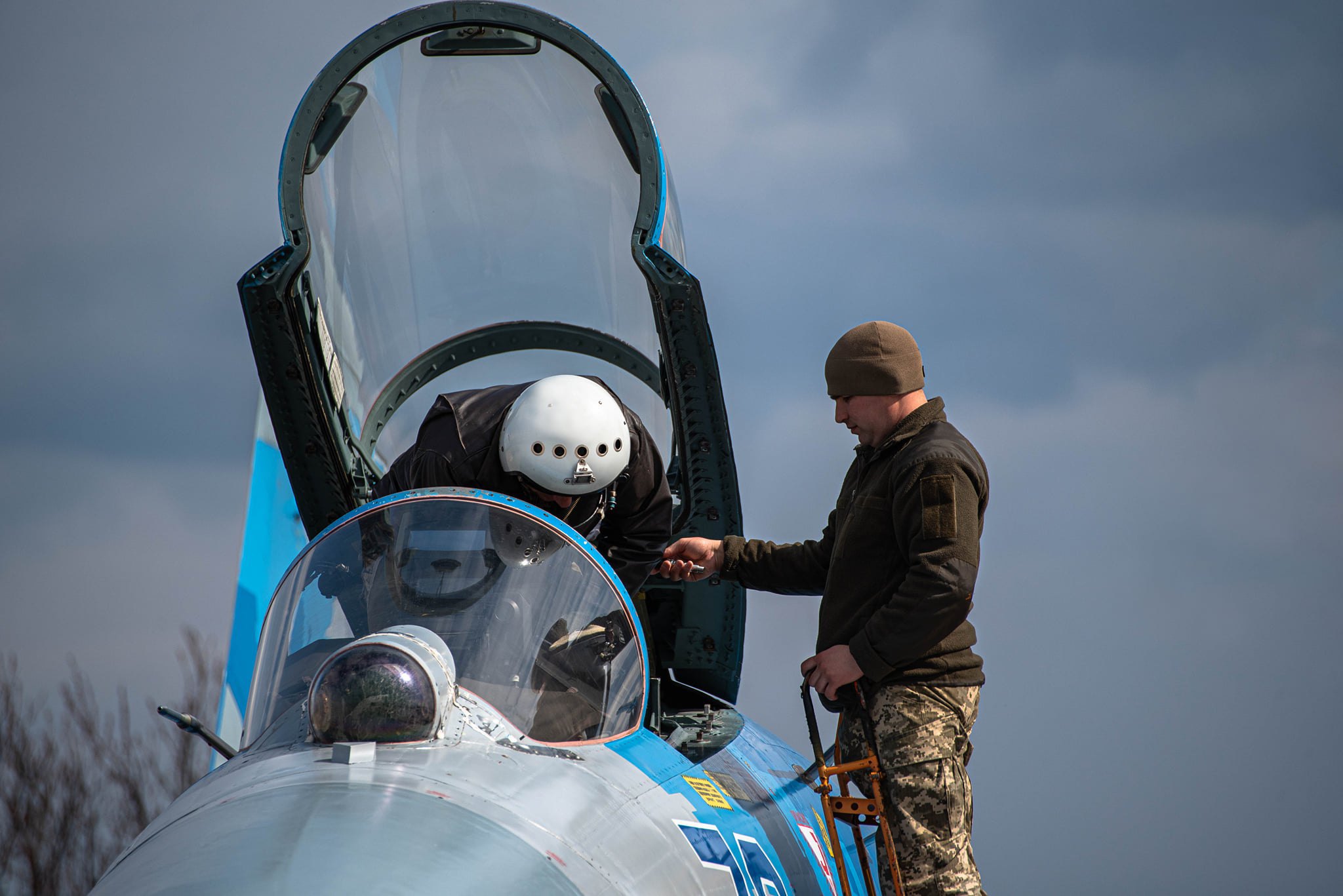
OB: Are there any plans to look at Swedish or American fighters, "Eurofighters"?
I recently flew to Sweden on a business trip. It did have a purpose.
OB: There was a lot of talk about the Automated Control System. When will it finally be implemented?
I am glad that you prepared for our interview. You ask the right questions. The depth of penetration into the material is very impressive.
The ACS is a priority, because simply adding ACS to the same forces and means of destruction that are currently available increases efficiency by at least 40%. This has already been proven. In other words, by fighting with Soviet guns, Soviet ammunition and having ACS, you can more effectively defend your country. This is a proven fact.
There are several developments at the so-called tactical level, strategic level, that are more or less ready for use, but, again, back to the lack of communication - the people who worked on these developments, until yesterday had not met with each other neither from a technical or programmatic perspective due to competition. At a meeting in Israel, I learned about the "ban on cannibalism" - the ban on competition in the field of cybersecurity in the interests of national security. I borrowed this analogy and announced to each of the developers of the various systems that I was locking them in a room with the Deputy Secretary of Defense, and until there is white smoke emanating from the chimney, that is, a consolidated decision has been reached (like electing a pope in the Vatican - LB.ua), they will not leave. I will not even feed them until they come to an agreement and merge the systems. Today we are already seeing significant, positive changes. My ambition is to complete fundamental initiatives this year, and the Armed Forces will get ACS.
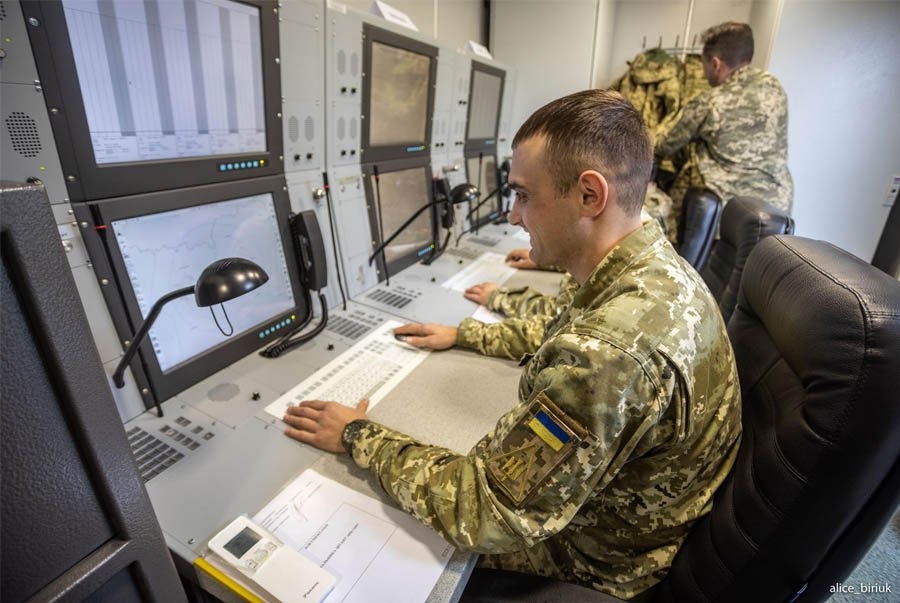
OB: That's cool.
Of course, it will still be finalized and modernized. And we warned the developers that they will need to account for all the funds they were previously allocated. Otherwise, we will just buy a ready-made system from one of the NATO countries. But I am, of course, interested in supporting a national manufacturer.
"A soldier receives UAH 10,300, while in the workforce the minimum salary that a boy or girl of this age can earn is UAH 14,000."
OB: A few years ago, the Return Alive Foundation conducted a large-scale study of why people leave the army. You are aware of this - even during your address to parliament you mentioned the need to fight the "Ukrainian paper army". This study provides very clear direction as to why people leave the service. How are you currently dealing with these issues, and are there any results?
There is some truly great research there. But the number one problem is financial security. I spoke from the podium of the Verkhovna Rada that a soldier receives UAH 10,300, and in the workforce the minimum salary that a boy or girl of this age can earn is UAH 14,000. The difference is significant. I repeat, the Armed Forces is the largest employer in the country. Of the 261,000 servicemen, conscription accounts for only 10%, the rest are contractors. Accordingly, increasing everyone’s salary requires huge budget expenditures. Therefore, there is a presidential decree to tie the base rate for financial compensation in the Armed Forces to two minimum salaries until 2023. Our goal is to gradually implement increases to the level our resources will allow. It is possible that the fiscal outlook will allow for this to be done within a year, and I will ask Serhii Marchenko to put this issue to a vote in parliament. But in 2023 we should see a real increase.
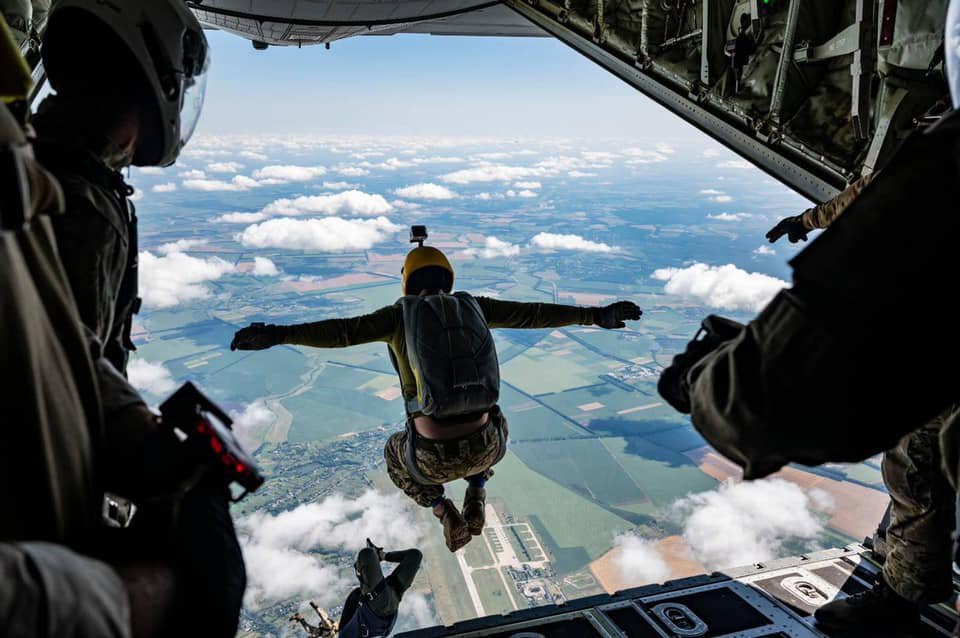
We have already started to do this with the most sensitive professions - as I noted, medics, pilots, servicemen of the Special Operations Forces, because there are complex training, testing, and requirements for combat missions. A sniper is a very rare and important position in the army, especially now, in the area of the Joint Operations Force. We recall that when the ceasefire, reached in July 2020, was violated, it lasted for almost five months, but then, from January 2021, our troops suffered the most losses from sniper fire. 54 servicemen were killed by a sniper bullet in 2021 alone. What is most cynical is that the OSCE does not see or hear a sniper's shot, but we must respond with grenades, upon which it will immediately claim that Ukraine is violating the Minsk agreements. Only a sniper can counter a sniper, counter-sniper activity. That's why we need to take special care of people who are learning to be snipers, instructors who are teaching snipers. Special attention is being focused on this military profession today because it is an opportunity to deter military "tourists" who come from the Russian Federation, as if onto a training ground, looking for someone to kill. We must employ counter-sniper measures.
As for the "paper army", we are in fact dealing with this. There are instances of a certain old Sovietism that we will eliminate, but there is also the issue of accounting, which the commander is still obliged to maintain, and report on the write-off of ammunition, fuel, property, and so on. Unfortunately, not everyone in the army is always honest. Many people have a desire in their blood to steal or resell something. Therefore, the individual responsible must report, because otherwise there will be prosecutors and explanations – where has everything gone. We are looking for a balance: how to maintain records but reduce paperwork. My deputy Oleh Haiduk was tasked with actively cooperating with the office of Deputy Prime Minister Mykhailo Fedorov and his ministry to maximize the digitization of accounting.
My dream – a personal, secure military card, which will record, among other things, the property issued to the individual, weapons, and at the same time it will be a pass. It will be possible to electronically write off and document. We are minimizing the paperwork that commanders need to complete, but some things will probably remain. The deputy has two main tasks: to reduce this Ukrainian paper army and to resolve the issue of ACS.
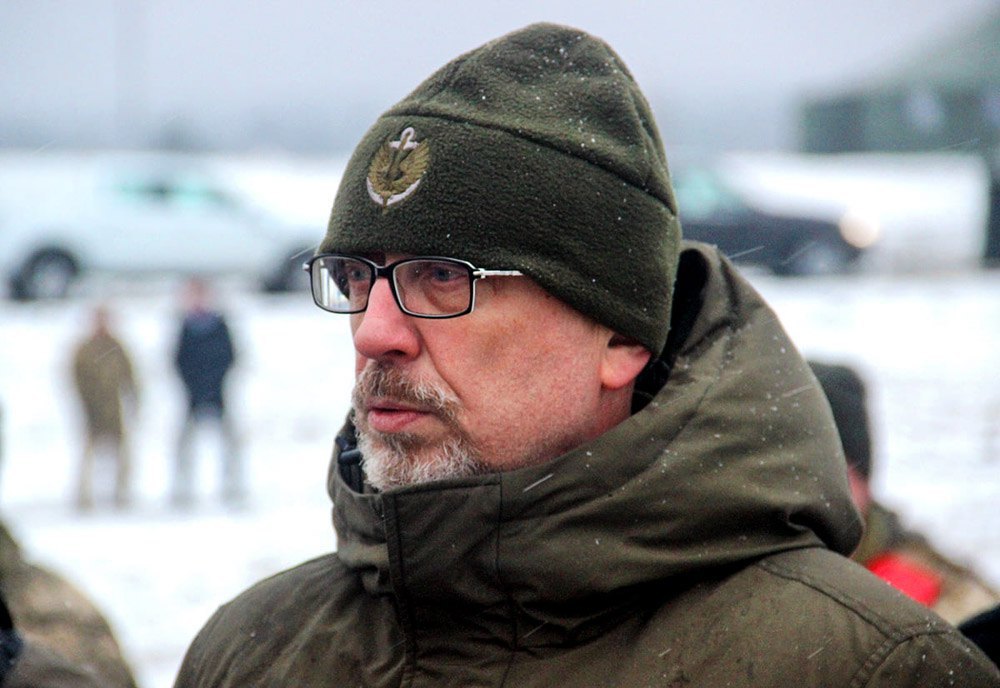
OB: In this study, there was a lot of discussion about unregulated, time-consuming inspections of units.
It is difficult for me to comment on this because the research was done earlier. It seems to me that under the new leadership and commander-in-chief this is no longer the case. The military inspectorate is under my authority, and it conducts inspections to identify violations and minimize the factors that lead to these violations, and not just to waste time.
OB: You said that it is difficult to raise the salaries of 260,000 servicemen. Many experts emphasize that it would be worthwhile to reduce the size of the army, while increasing logistical support. The Armed Forces employs 46,000 civilians, non-military personnel. Do you need them all?
We are discussing this with the commander-in-chief. Under the circumstances of the threats we face, and the area of our country, the size of the population, the lack of an Alliance at our back that could theoretically protect us, we probably cannot afford a reduction based on defense capabilities and plans.
Look, the east and the south are risk zones, in the north there are more than 1000 kilometers of the Belarusian border…
"Within a decade, Europe will understand that it is better to finance the Ukrainian army as one of the main security players in Europe"
OB: Should Ukraine pursue a professional army, give up conscription?
We already have a partially professional army, contract based.
OB: Yes.
My feeling is that this hybrid option will eventually become a professional army. I am convinced that no army in Europe has the experience of our Armed Forces. The armies of the United States and the United Kingdom have some experience from Afghanistan and other hotspots, but no army has this experience combined with maneuvers, and the ability to return to combat readiness. I'm not talking about 400,000 veterans. My prediction is that within a decade, Europe will realize that it is better to finance the Ukrainian army as one of the main security players in Europe. And Ukrainians will not pick olives there, but will proudly wear a military uniform, and Europeans will pay for it. I am convinced of this.
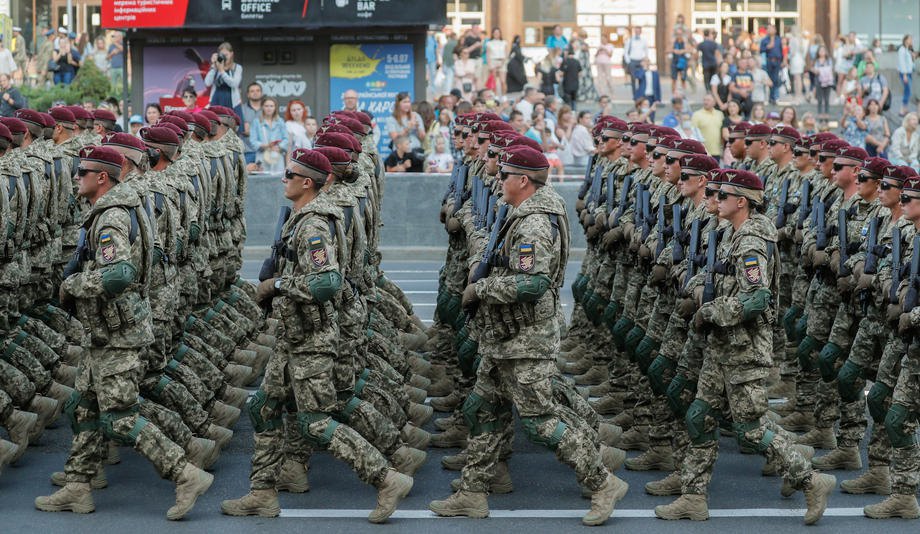
SK: In 2021, the Military Security Strategy was adopted, where for the first time there was a clause on the use of comprehensive territorial defense. The relevant law came into force on January 1. In other words, almost the entire Ukrainian population will be involved in the defense. At what stage is the creation of territorial defense currently? We talked about this with Andriy Kryshchenko to some extent, who heads the defense of Kyiv ...
With all due respect to Andriy Yevhenovych, he does not lead Kyiv’s territorial defense. In his public speeches and interviews, he misinformed that the deputy head of the Kyiv City State Administration is creating a territorial defense. This is not true. And it can't be true. The fact is that the Law "On the Fundamentals of National Resistance", which entered into force on January 1, clearly states that territorial defense lies with the Territorial Defense Force as part of the Armed Forces of Ukraine.
Until January 1, 2022, there were the Armed Forces, the Navy, the Air Force, which includes air defense, the Special Operations Forces, the Assault Troops, the Medical Forces, and the Logistics Forces. And now we have another military formation, called the Territorial Defense Force. The Commander of the Territorial Defense Force is Brigadier General Yurii Galushkin, hero-paratrooper, performed combat missions at the Donetsk airport, deputy commander of the Ukrainian Air Assault Forces. He reports to the Commander-in-Chief of the Armed Forces of Ukraine, Lieutenant General Valerii Zaluzhnyi. And in accordance with the law, they number 10,000 personnel in peacetime, which are added to the Armed Forces. Thousands of sergeants and officers of the Armed Forces of Ukraine form battalions and brigades in peacetime. Neither Kryshchenko nor any mayor has the right to create detachments. If they create something - these are illegal formations that have nothing to do with the Armed Forces of Ukraine.
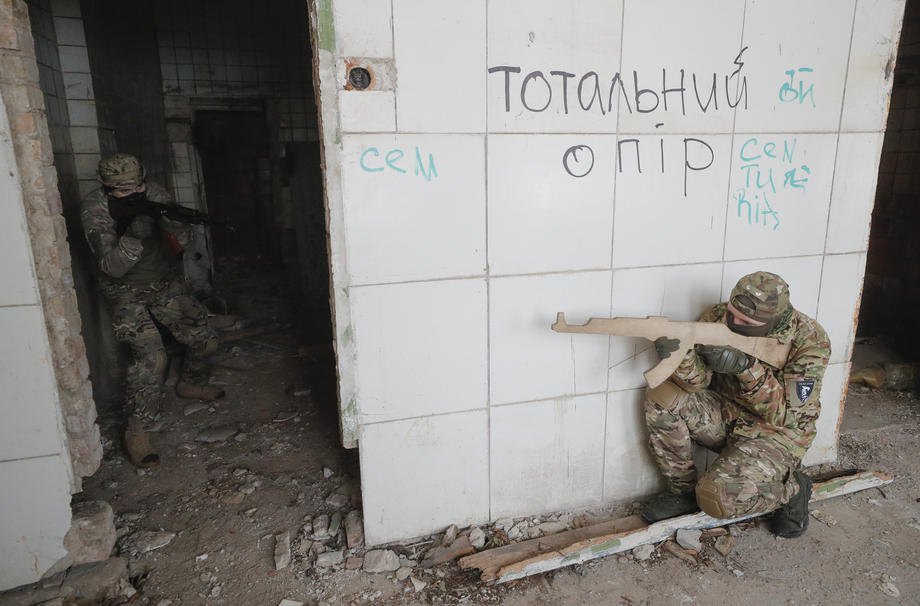
Weapons will then be given to reservists for training and in the event of, God forbid, X or D-day, as the Americans say, they will be stored in the armed rooms of military units and assigned to these people. Reservists become servicemen of the Armed Forces. Representatives of local state administrations and local authorities help by providing premises, repairs, transport, and other support. They have no legal right to declare that they form a territorial defense. They have nothing to do with it.
Contracts with reservists wishing to take part in territorial defense will be concluded by the commander of this battalion on behalf of the Armed Forces of Ukraine. And his salary will be paid by the Ministry of Defense, which I head today, from the budget approved by the parliament, not the local government. I constantly communicate this and ask not to make mistakes.
The only other thing that the law provides for is the third level – voluntary formations in small villages, populated settlements, at the request of the Commander of the Territorial Defense Force, in this case Brigadier General Galushkin, and by decision of the Commander-in-Chief of the Armed Forces Lieutenant General Zaluzhnyi. If there is a tunnel or bridge in the village that is of strategic importance, but it does not warrant keeping a battalion there for protection, a voluntary formation of local residents can be created which can use non-military, hunting weapons. This means that they are still tested for use of narcotics and have no criminal record if they are to receive a hunting weapon. In other words, local residents, united under the leadership of the Armed Forces, can form volunteer formations. Everything else, as they say, is delivered from evil. This is a principled position.
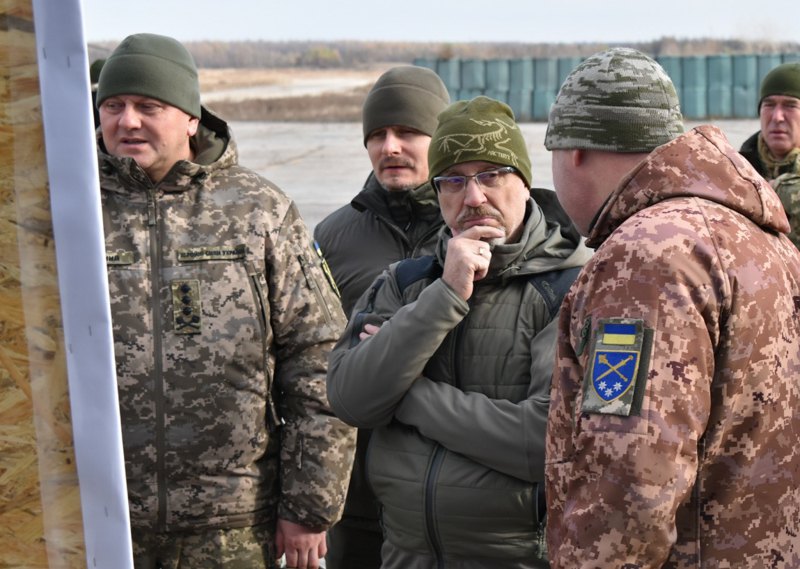
SK: Is there any work being done with veterans' organizations to involve them in territorial defense?
Yes. We are discussing this with the Ministry of Veterans Affairs. Mrs. Yulia Laputina is a veteran, Major General. Her first deputy Oleksandr Porkhun is a Hero of Ukraine. They are already meeting with veteran communities because they are ready, willing to serve and to join reservists. The first wave of recruitment is underway, we need to fill at least 70% of the required 10,000, which will enable us to fulfill the mandate. In all border areas, we have 70% staffing in peacetime. They have started to work: concluding contracts, renting premises, preparing armed rooms (alarms, bars), etc. Work is already underway with willing reservists. We held several meetings with the General Staff, simplified the process, removed the extra paperwork to be submitted by a person who wants to become a reservist. Because the last regulation was from 2009.
The Law on Military Accounting regulates this issue by orders of the Ministry and the General Staff. The Ministry determines which documents a person requires to sign a contract with the Armed Forces on a permanent basis, and the General Staff regulates the process for reservists. We have simplified the requirements, but a person who wants to be a reservist must be aware that, in addition to a passport, he must be ready to demonstrate that he is not being treated for addiction and has no criminal record. It’s about giving the right to use weapons. Let's remember the tragedy that took place in the National Guard, so medical assessment is very important.
Many elderly people want to be reservists. For them there will be, say, simplified requirements, but a person must still be healthy. By law, they have a period of one year to undergo appropriate training. Last year, more members of the Armed Forces died as a result of poor health than were killed. So, without offending, we are forced to check the state of health.
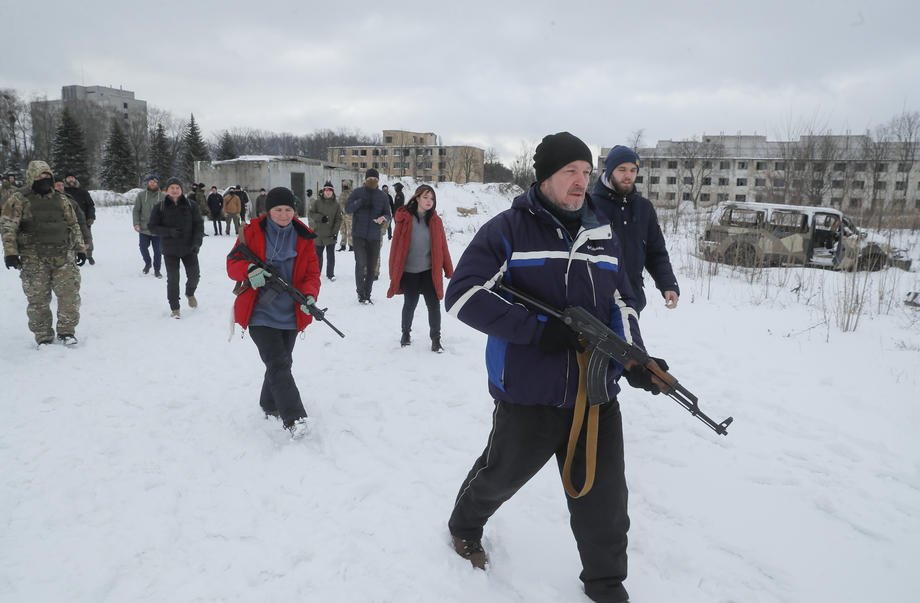
“It is possible that should this prove to be a risky proposition, and the Territorial Defense Forces are trained, they may need to be armed with anti-tank weapons. It can be "Stugna", "Corsair"”
SK: In 2020, the Ministry of Defense concluded tenders for the purchase of uniforms valued at UAH 2.79 billion, in 2021 - for UAH 1.66 billion. Given that the Territorial Defense Force is growing, there will obviously be problems with uniforms.
I do not like the word "problem". Because a problem is a task that has no systematic solution. I love the word "task" in solving them. We received the needs for each region from the commander of the Territorial Defense Force, Mr. Galushkin. The urgent needs differ. And in order to move quickly without waiting, I signed a letter to each head of the Oblast State Administration and the head of the Kyiv City State Administration outlining the needs of the Armed Forces, namely of the Territorial Defense Force in each region. In some cases there is a need for premises, in some places renovations are needed, in some places equipment (bars, alarms, for example), in others it is the purchase of clothing for reservists. This is not mandatory, but merely a request for assistance. The state administrations understand their budget, they have some subvention programs. Of course, they will coordinate these issues with my colleague, Mr. Oleksii Chernyshov, because he is their reporting minister. I discussed this with Oleksii Mykhailovich.
The heads of the regional state administrations have received these appeals for help, and they are currently working on who will be able to help and who will not, but we will precisely understand the scope of the order. I had a conversation with Mr. Ruslan Stefanchuk, Chairman of the Verkhovna Rada, about how the Verkhovna Rada can help in times of challenge. We discussed which laws are priorities to be adopted. Once I understand what needs to be funded immediately, we will discuss this with the Minister of Finance, confirm it with the Prime Minister and come to Parliament to request changes in the budget. Ruslan Oleksiiovich organized a meeting with the heads of factions, leaders of all movements, in general, the conversation was constructive.
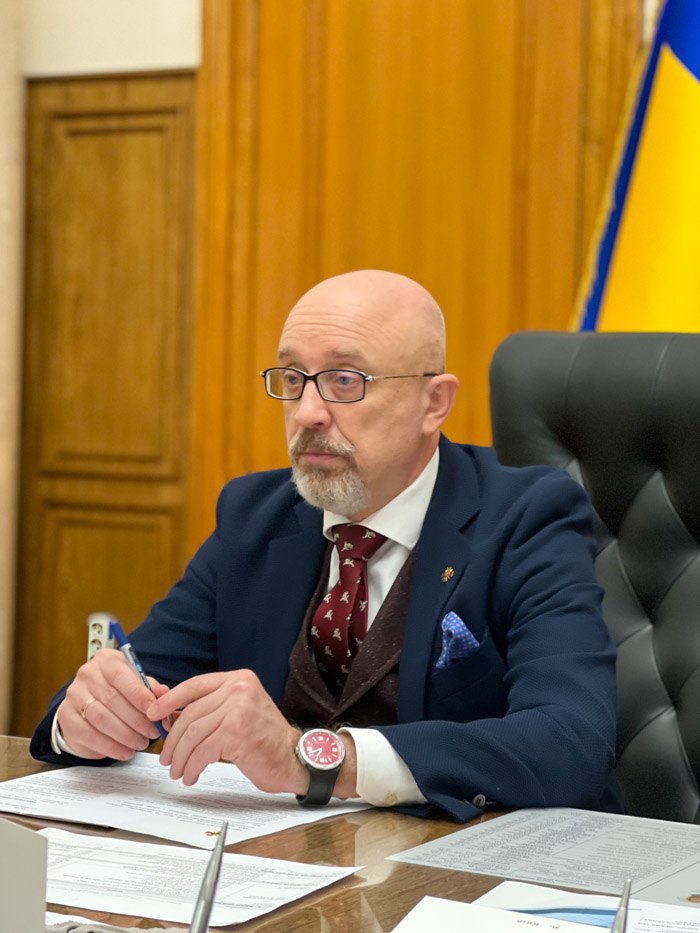
Returning to the needs, perhaps in some regions local or state authorities or mayors will be able to use their local budgets to fund clothing. We would be very grateful. Although I emphasize once again: it is our duty, the duty of the state in this case, to find additional funding to purchase everything necessary. This is not only clothing, but also defense systems - helmets and bulletproof vests. We have weapons and ammunition for reservists, but the defense systems must be continually purchased.
By the way, I would like to take this opportunity to make a public appeal to the business community. Why have none of the big businessmen considered opening a plant in Ukraine for the manufacturing of helmets and effectual NATO-style bulletproof vests? I pose a real question: 261,000 - the number of the Armed Forces, 45,000 - the Border Guard Service, 45,000 - the National Guard, 90,000 - the National Police. Almost half a million units, not including intelligence and security firms. In addition, any bulletproof vest is subject to replacement within 2-3 years. Plus the territorial defense, plus reservists. Why doesn't anyone produce these items?
OB: And why doesn't anyone produce it in Ukraine?
Question’s in the air. No, we have two manufacturers. One is a participant in a criminal case - about 16,000 bulletproof vests have been confiscated from warehouses, and their suitability and readiness to withstand bullets is doubtful. In addition, the capacity of these two manufacturers is 3,000 units per month. This will not cover our needs. That is why today I am forced to send my deputies around the world, to look for those who are ready to sell a large number of NATO-standard bulletproof vests so that I can quickly incorporate them.
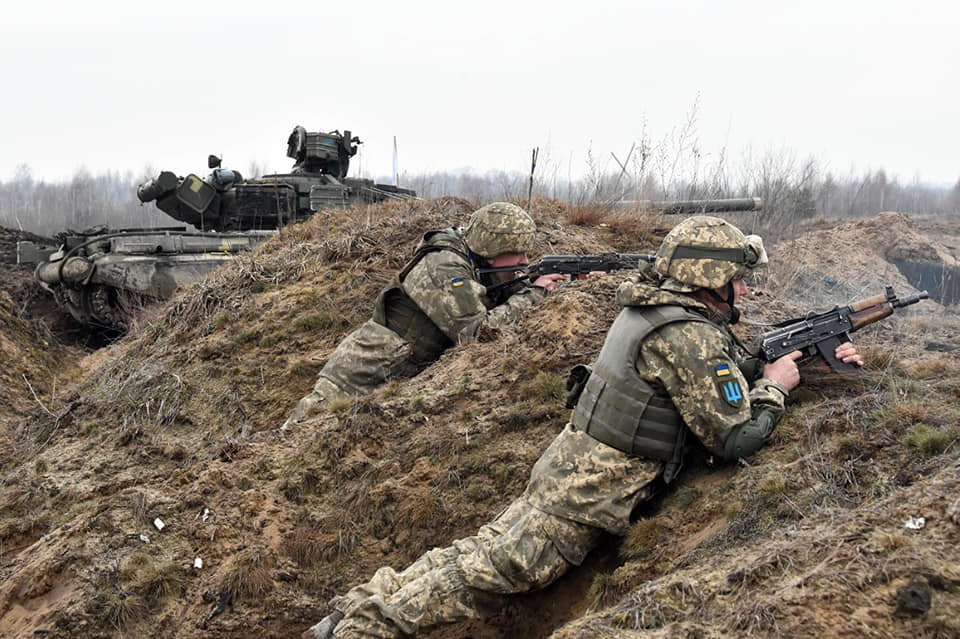
SK: According to the resolution of the Cabinet of Ministers, within the framework of the Law on National Resistance, members of the Territorial Defense Force are allowed to use their own weapons. In this case, how can they replenish ammunition centrally?
Again. The reservists who are contracted will use the weapons of the Armed Forces of Ukraine. They will be stored in the armory of the military unit. Both weapons and ammunition will be issued. It is not the reservists of the Armed Forces who will use their own hunting weapons, but the volunteer formations in small settlements that we discussed.
SK: How do they replenish ammunition?
They will not be running to attack, will not conduct intense fire. They will fulfill the auxiliary function of protecting an object. When we come to an understanding of the number of such volunteer formations, and after 10,000 military defense personnel have been trained in peacetime and 130,000 more are ready to be deployed within a day, then, God forbid, if necessary, we will determine what to do further with the volunteer formations. We need to understand what caliber they have, the barrel - smooth or threaded. For the most part, the Armed Forces do not have such weapons. Do you understand? Rarely does anyone legally have a Kalashnikov assault rifle.
SK: Will the Territorial Defense Force be exclusively light infantry, and will it be provided with mortars and light anti-tank weapons? In Lithuania, for example, this force is equipped with Javelins.
Consider the population of Lithuania and the population of Ukraine.
SK: Generally speaking.
The law has just come into force and, based on this, we are only assessing the potential. The task now is to recruit 10,000 servicemen for territorial defense. Each of them will have on their radar about 10 reservists, and will teach them. Then everything will depend on the territory, risks, and threats. Regardless whether it will be Volyn, Chernihiv, Zakarpattia, or Mykolayiv. The commanders of the Territorial Defense Force, together with the General Staff and the Commander-in-Chief, will assess the risks and threats, with an understanding of what we are preparing for. Are we protecting the nuclear power plant using the Territorial Defense Force or, hypothetically, the dam on the Kyiv Sea, or are we doing something else? I would like to remind you that the Territorial Defense Force is ancillary to the Armed Forces as a whole. It must fulfill tasks within its territory at the time of full deployment.
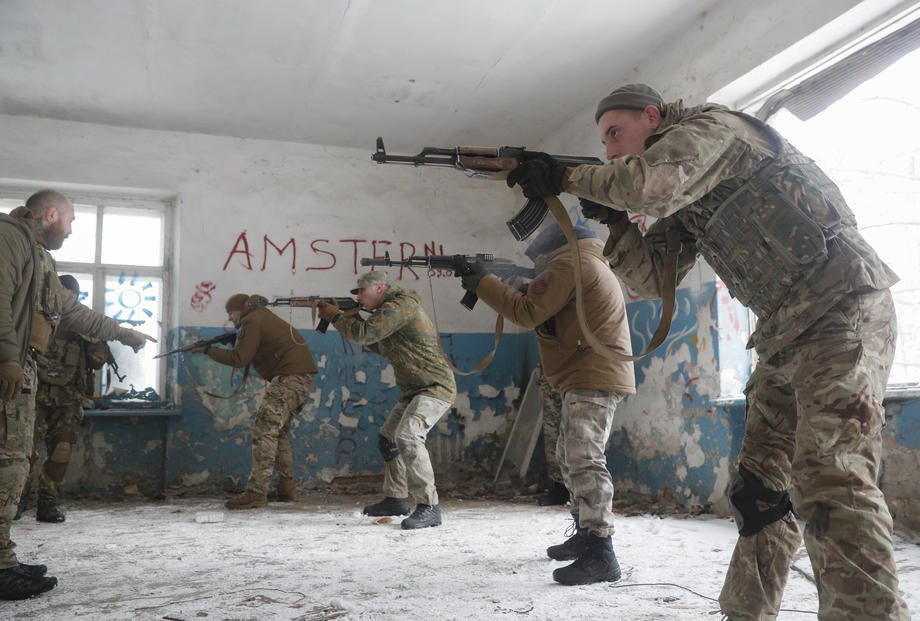
SK: Provide cover. It is clear.
It is possible that should this prove to be a risky proposition, and the Territorial Defense Forces are trained, they may need to be armed with anti-tank weapons. It can be "Stugna", "Corsair", depending on availability, and if we can, conditionally speaking, trust them.
Let's be realistic, territorial defense will develop, I think, over the course of three years. Legislation will need to be amended. But I am an optimist. You know my position on the legalization of weapons in society. And so I hope that the development of this law will result in further modernization, and we will come to the legalization of weapons as such.
SK: There was only one cartridge factory in Ukraine that remained in occupied Luhansk. How do we deal with ammunition production?
By the way, I am prepared to add to my request to the business community, in addition to defense systems - helmets, bulletproof vests, also the manufacturing of cartridges and barrels. This is the best story for business today.
OB: The Luhansk plant was state-owned. This is a unique, sensitive topic. Maybe the state should build such a plant?
Cartridge factories around the world today are private. They can easily earn money, not only by selling to meet the needs of the security and defense sectors, the Armed Forces, the National Police, border guards, but also abroad. In Europe, everything is easily bought. According to my information, about 200 million rounds of ammunition were bought by Taiwan from European factories. This is a business.
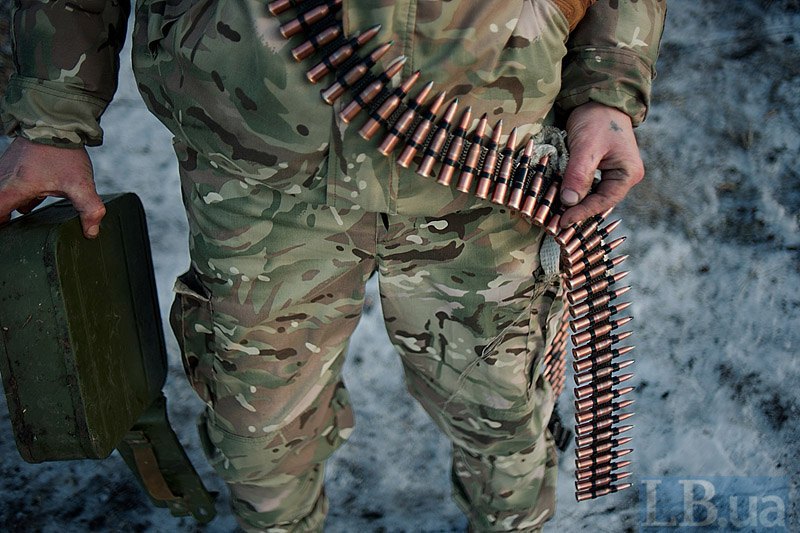
Business can come and say: I am ready to invest, if you guarantee that you will buy ammunition from me for 10 years. I am ready for a 10-year contract. On average, one line of the same caliber costs from 15 to 25 million. It is necessary to calculate what calibers are needed - 7.62x39, 223, or 5.45, or 308, or 338, or 9x19 Luger pistol. You need to calculate how much consumption there will be in Ukraine, how much the neighboring countries could buy. And now here is the nuance - our legislation does not allow the Ministry of Defense to sign a 10-year contract with a plant that does not yet exist. The plant needs to be built, tests and trials need to be conducted, and only then will we be ready to buy. And we will provide a three-year contract under the Three-Year Procurement Plan. If there are no competitors, then we will buy for another three years and three more, etc.
SK: But it's all in the future.
It is necessary to produce everything that is needed - barrels of automatic rifles, cannons, etc.
OB: Will at least a partial mobilization be announced? It has not been in effect for a long time, and it is unknown whether this mechanism has been at all effective.
From the perspective of a threat, there is no need for mobilization currently. If we announce a training mobilization, it will cause panic on the streets. Everyone will think that we knew and concealed that the enemy would attack tomorrow.
We will proceed differently: we will continue with the formation of the Territorial Defense Force. They will be taught, there will be normal field training. And the first training will be conducted with heads of the Oblast State Administrations, Raion State Administrations, plus the Kyiv City State Administration, of course. We have four sectors: north, south, east, and west. The command of the Territorial Defense Force is similarly divided. We’ll start from the north, gather all the oblasts, plus Kyiv, we will teach them for two or three days on the firing range, how to interact, what to do. Then we will proceed to the east, south, and west.
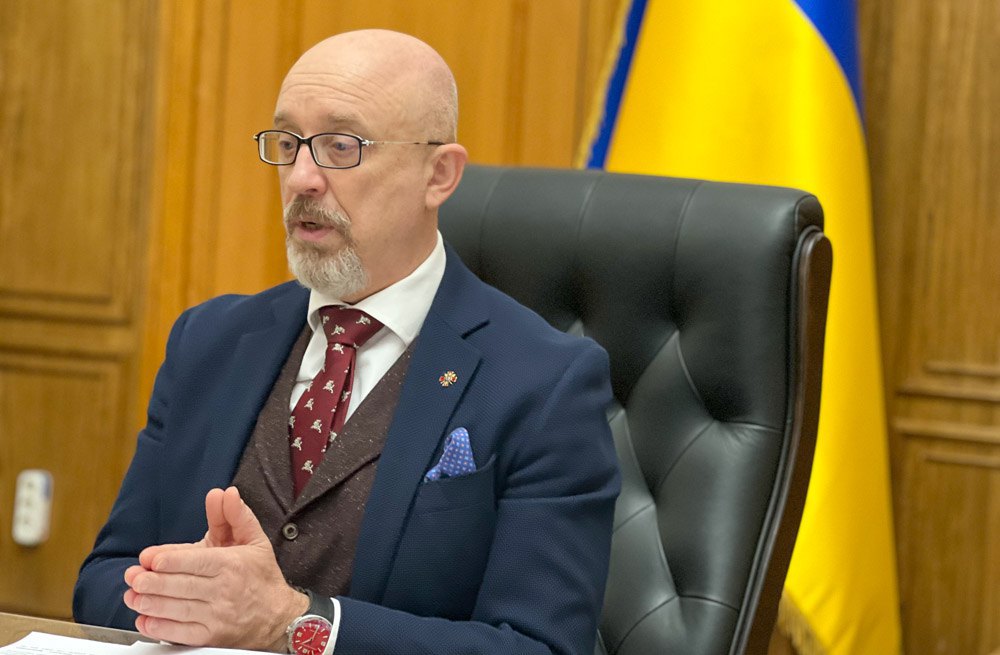
OB: So, it will be possible to photograph Vitali Klitschko with a machine gun and a bulletproof vest?
As with all heads of state administrations. If he agrees and remembers that he must come in person and not send a deputy, or come with the deputy, why not? I am convinced that he is in good physical shape.









